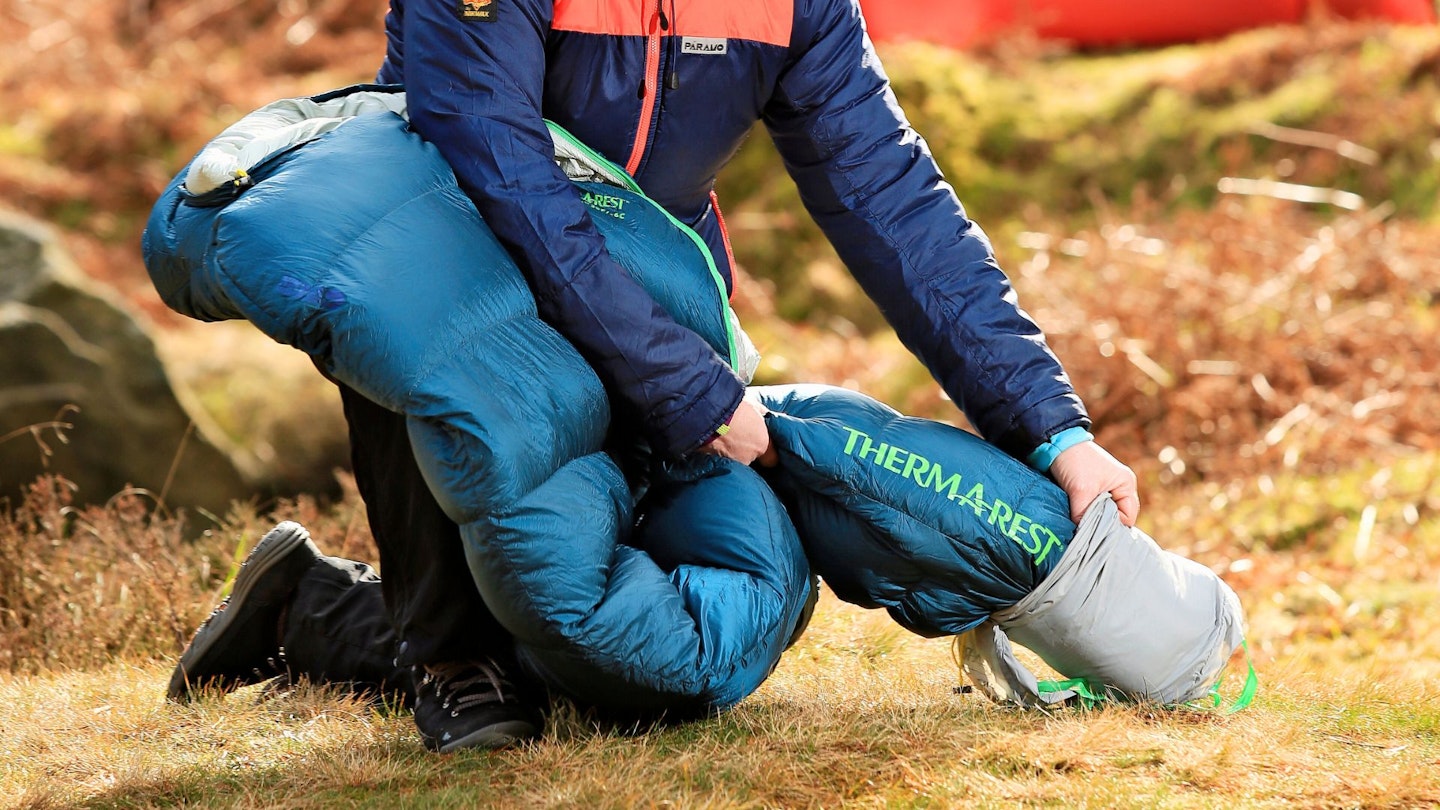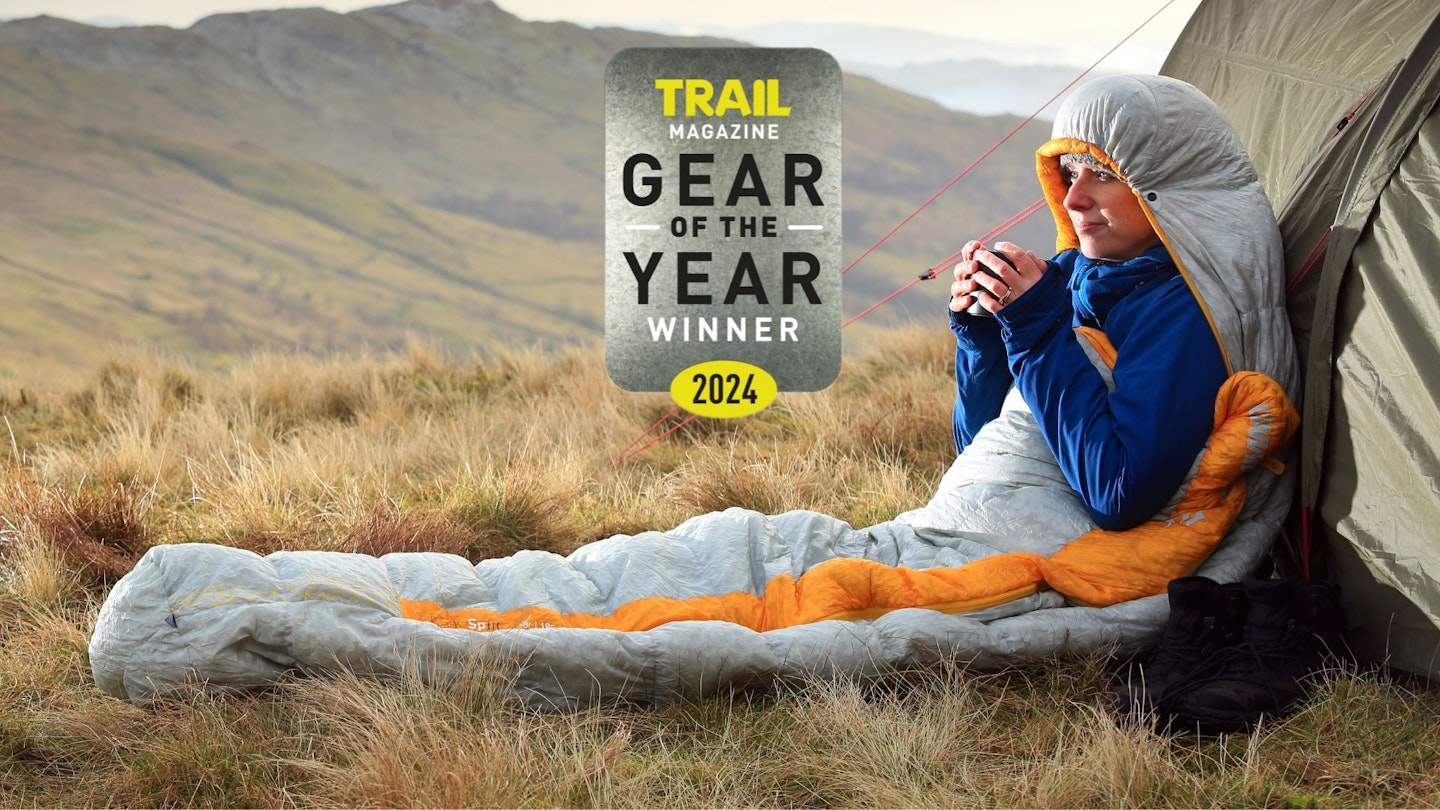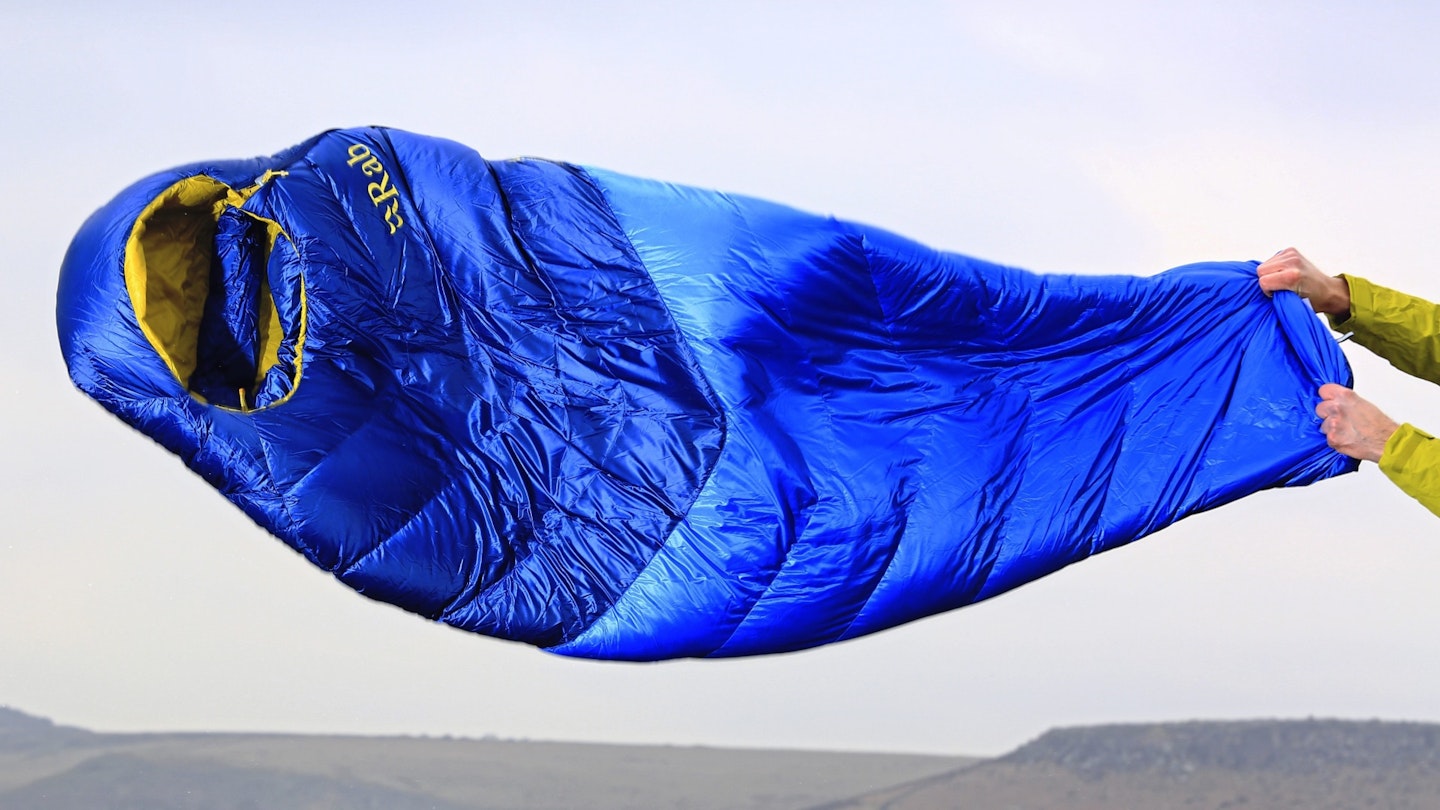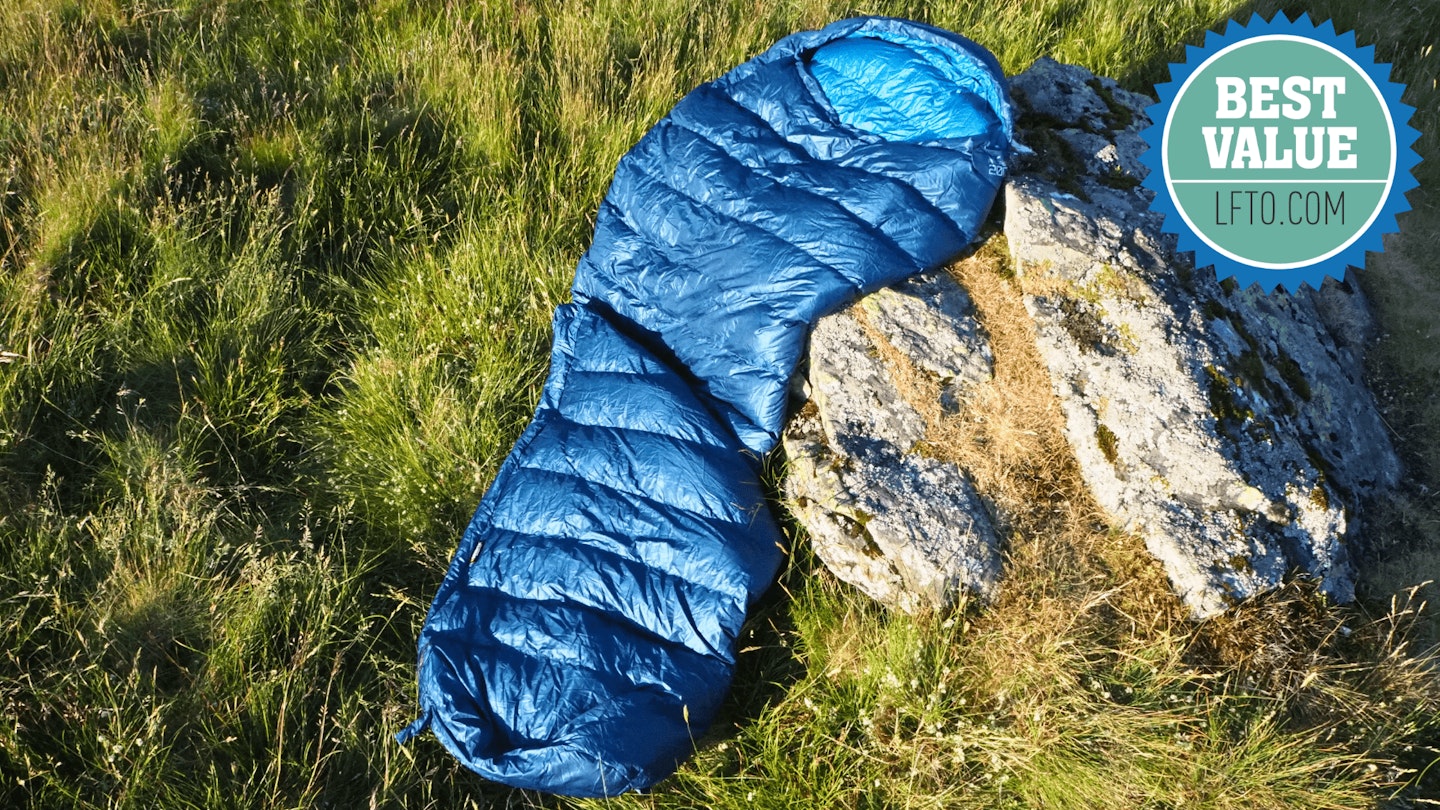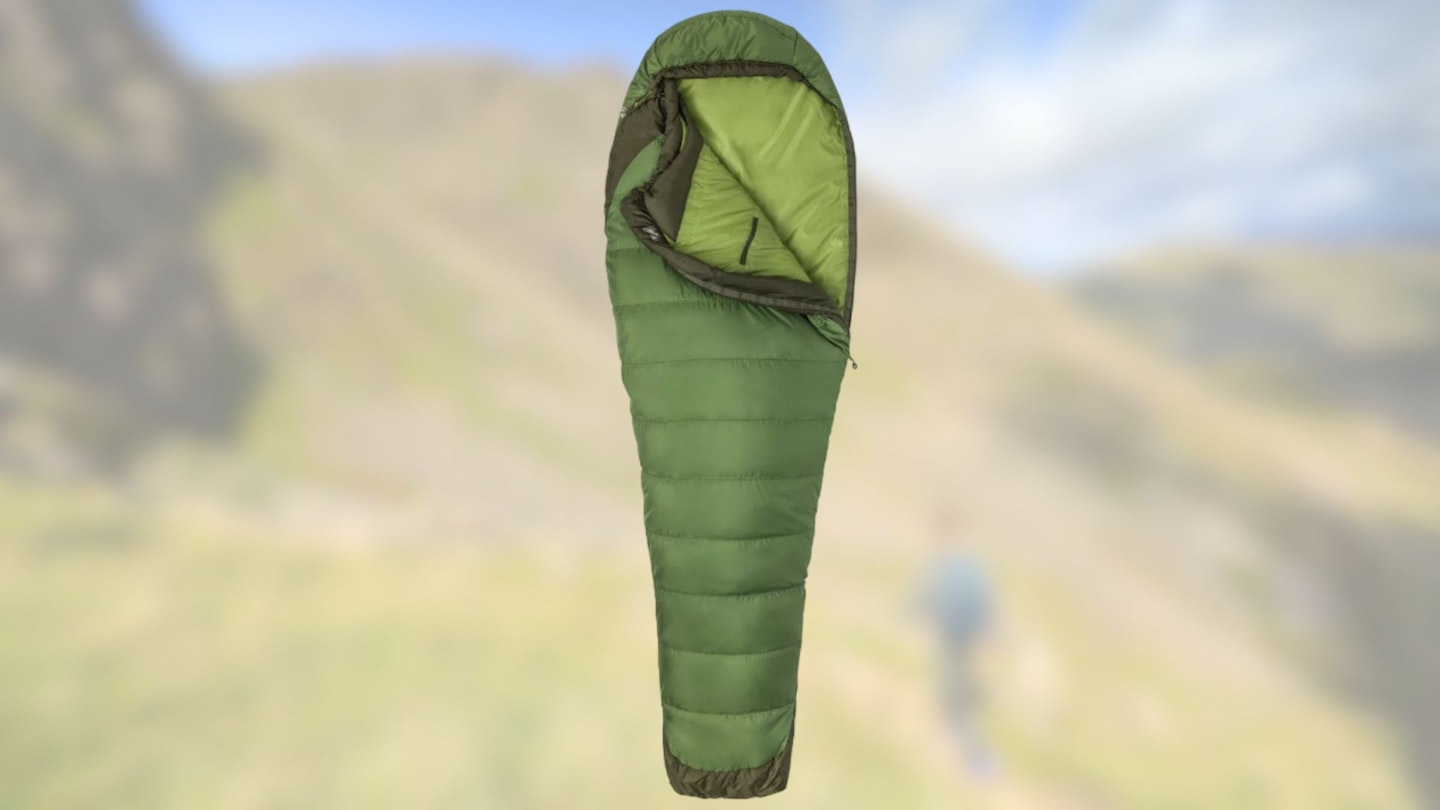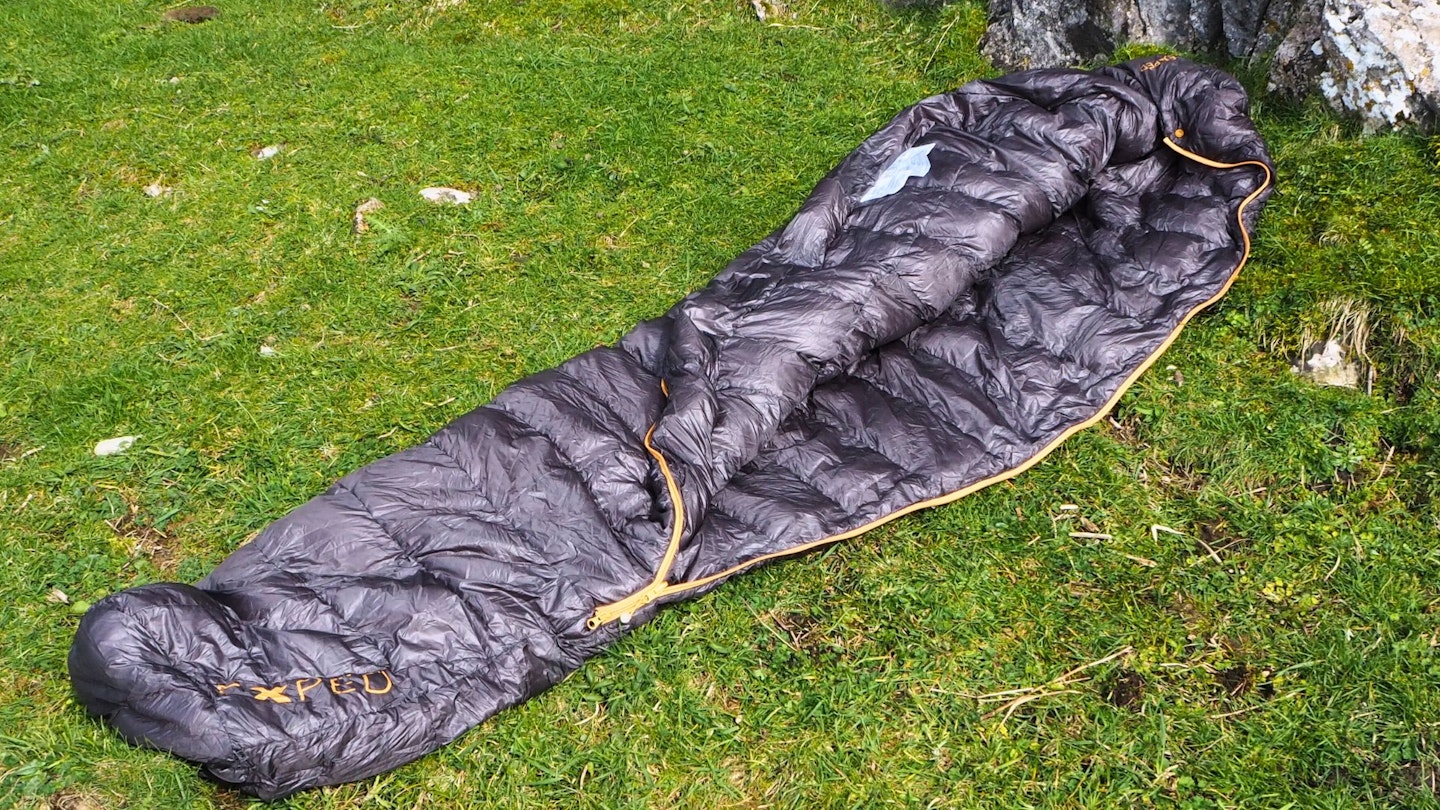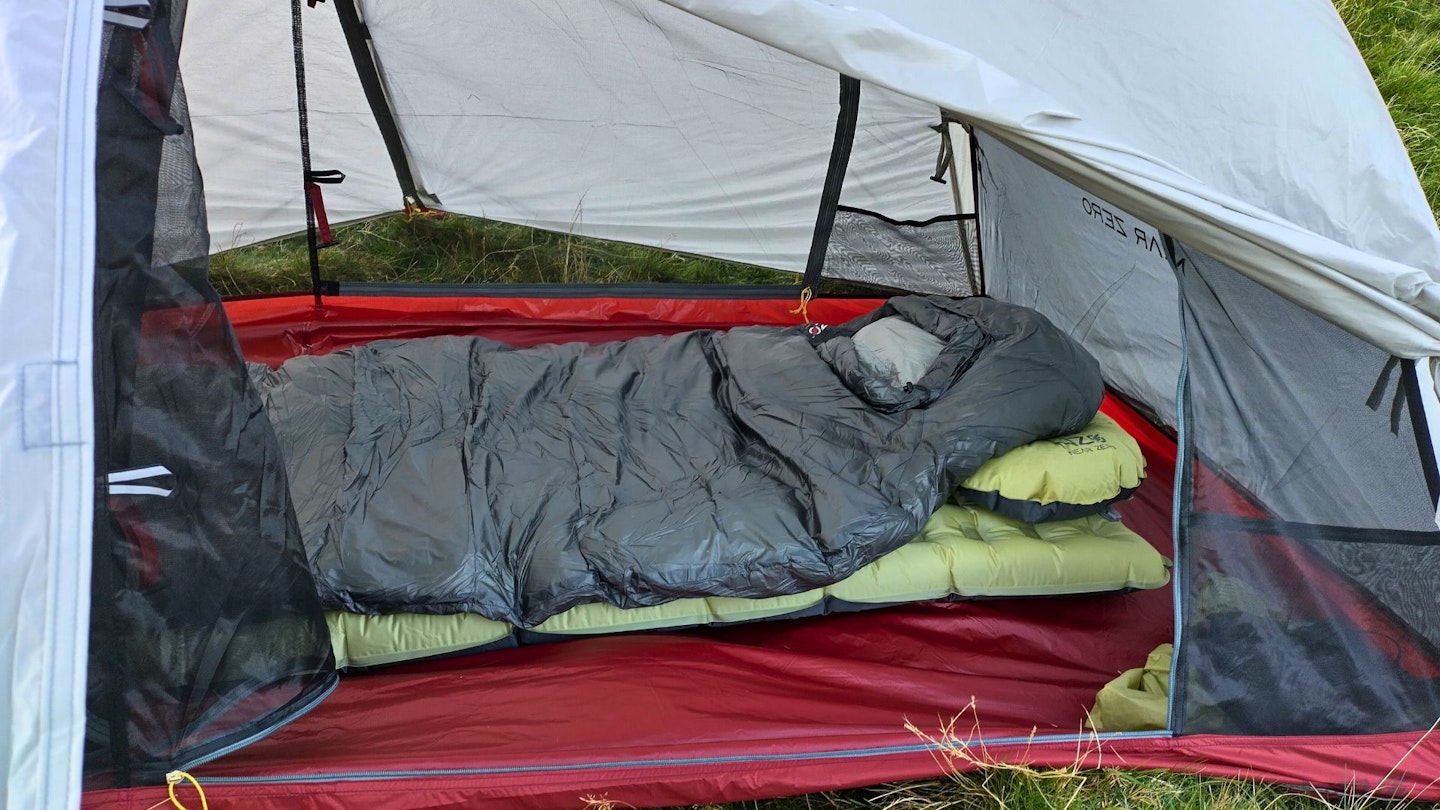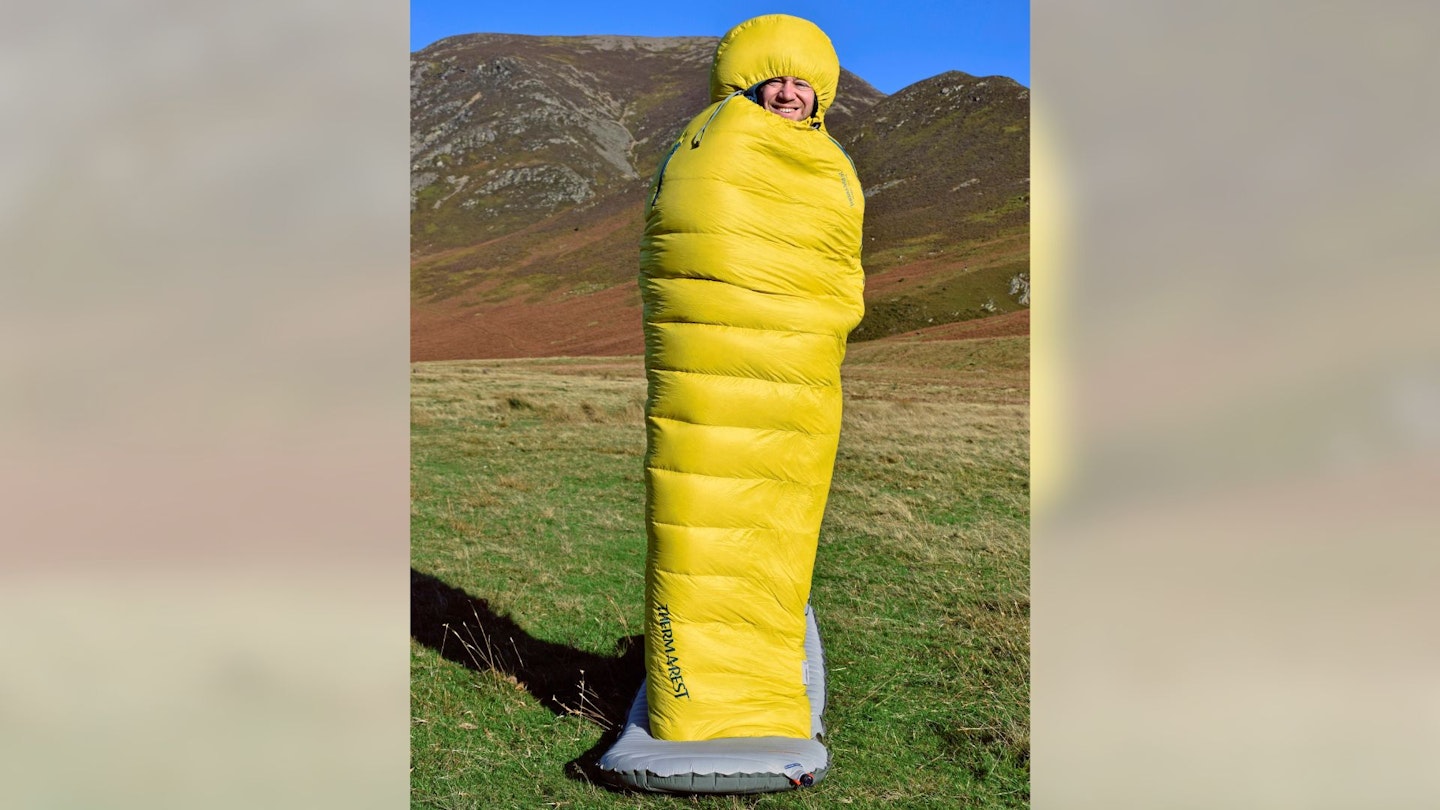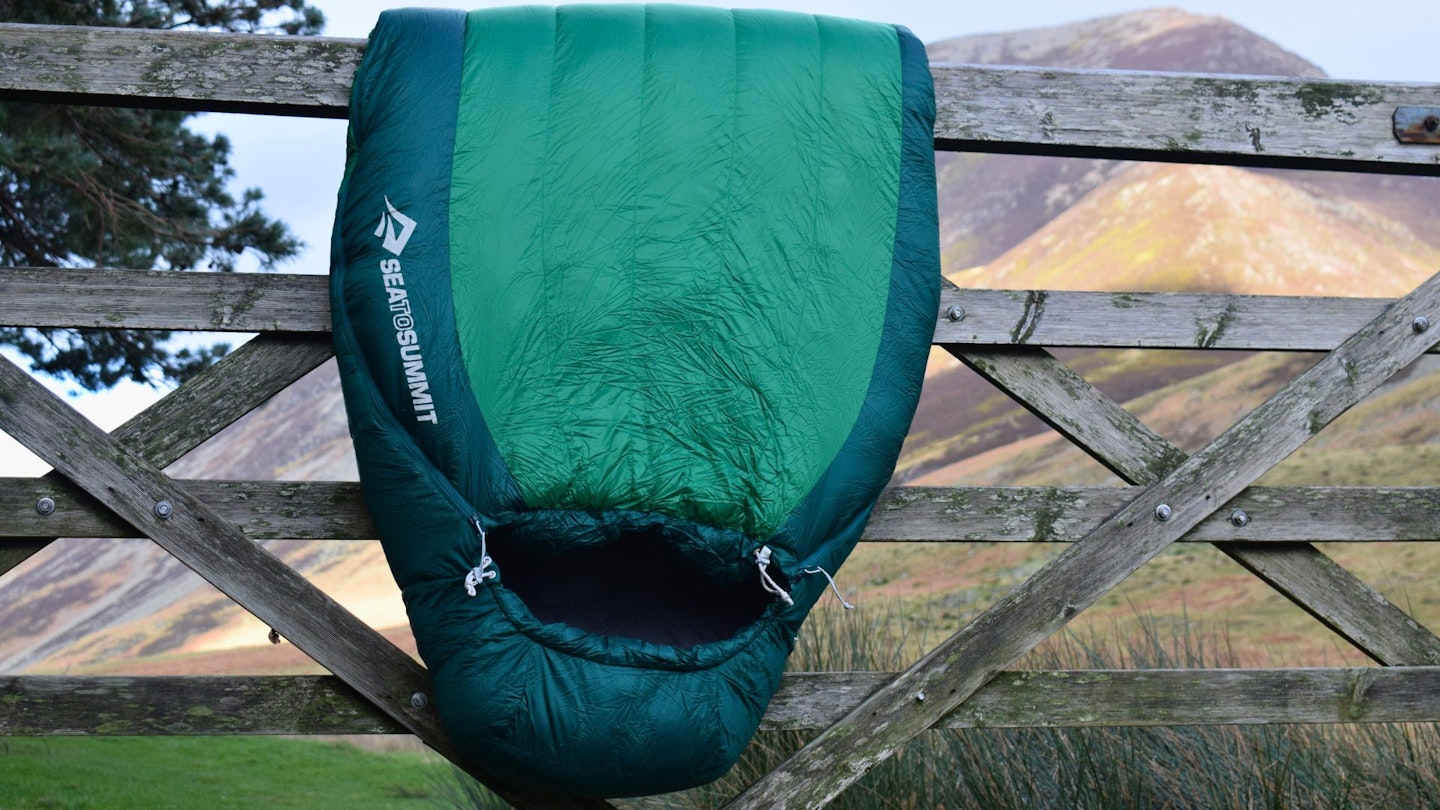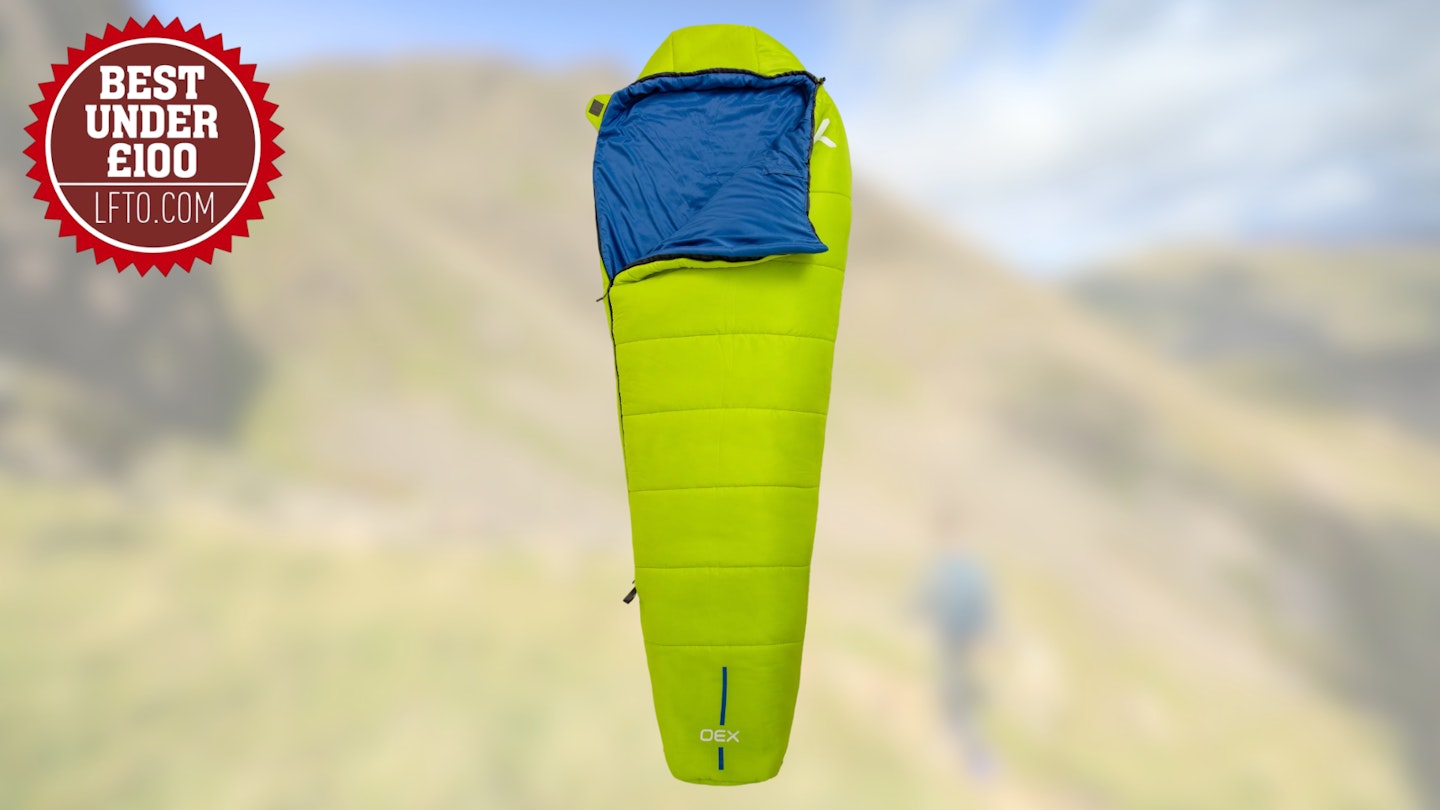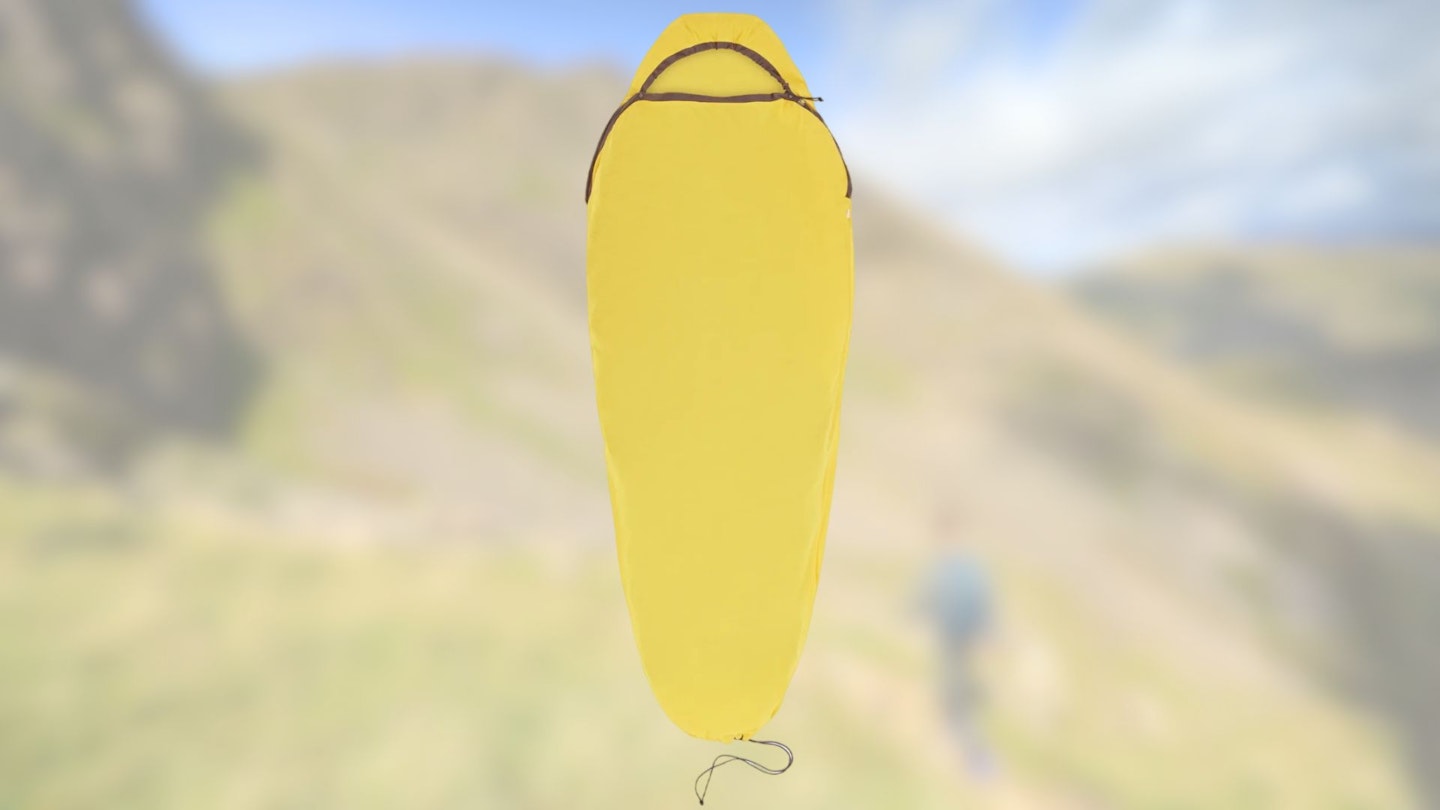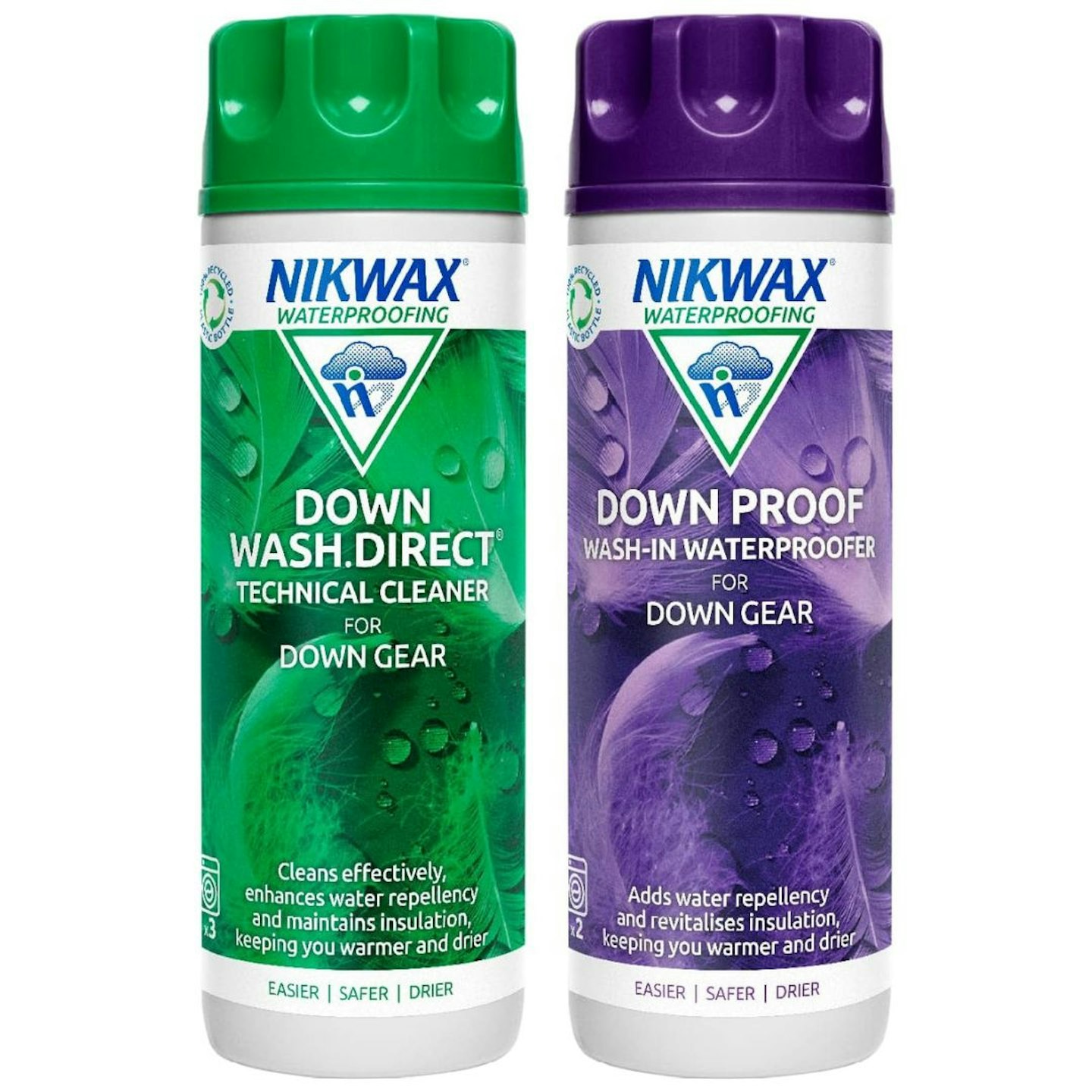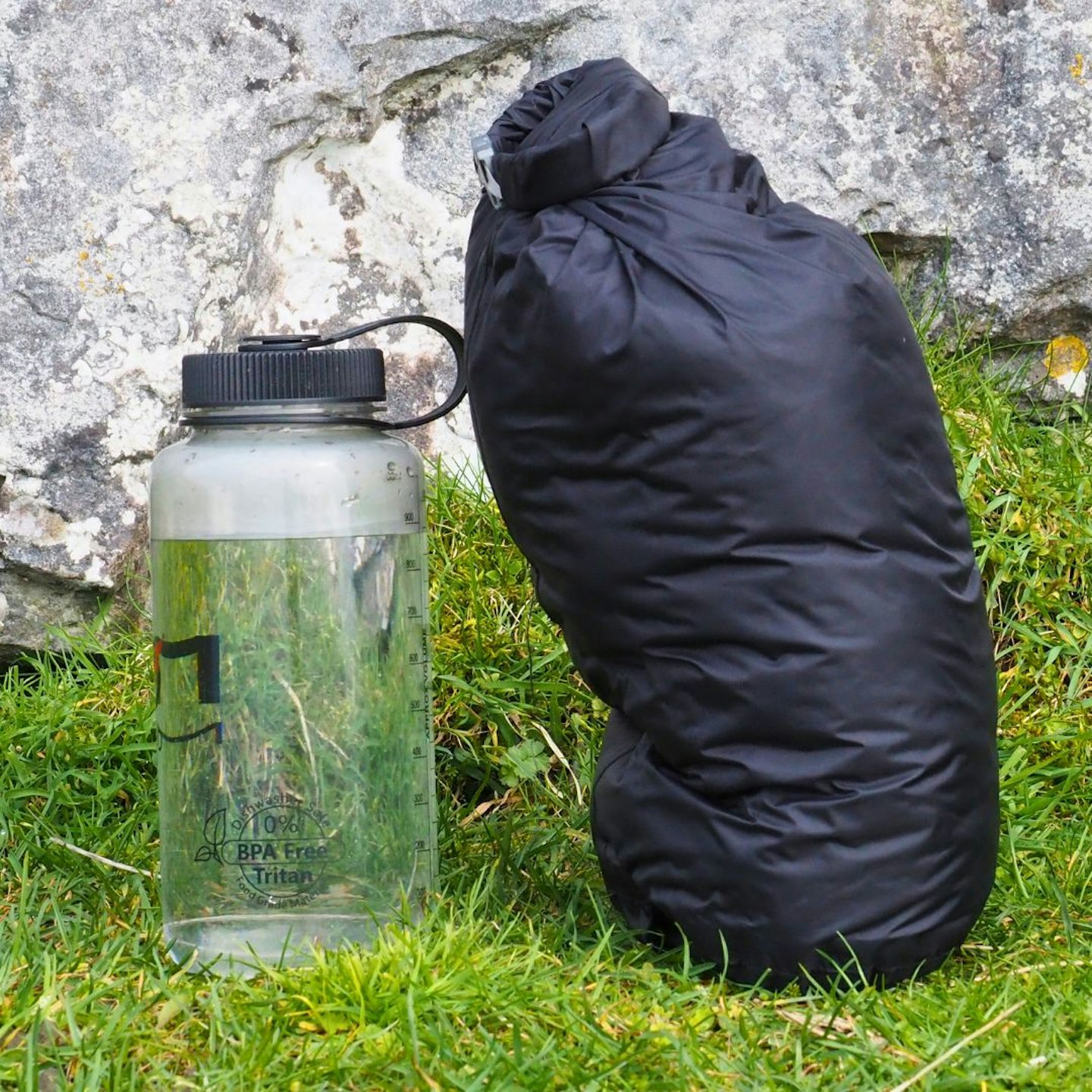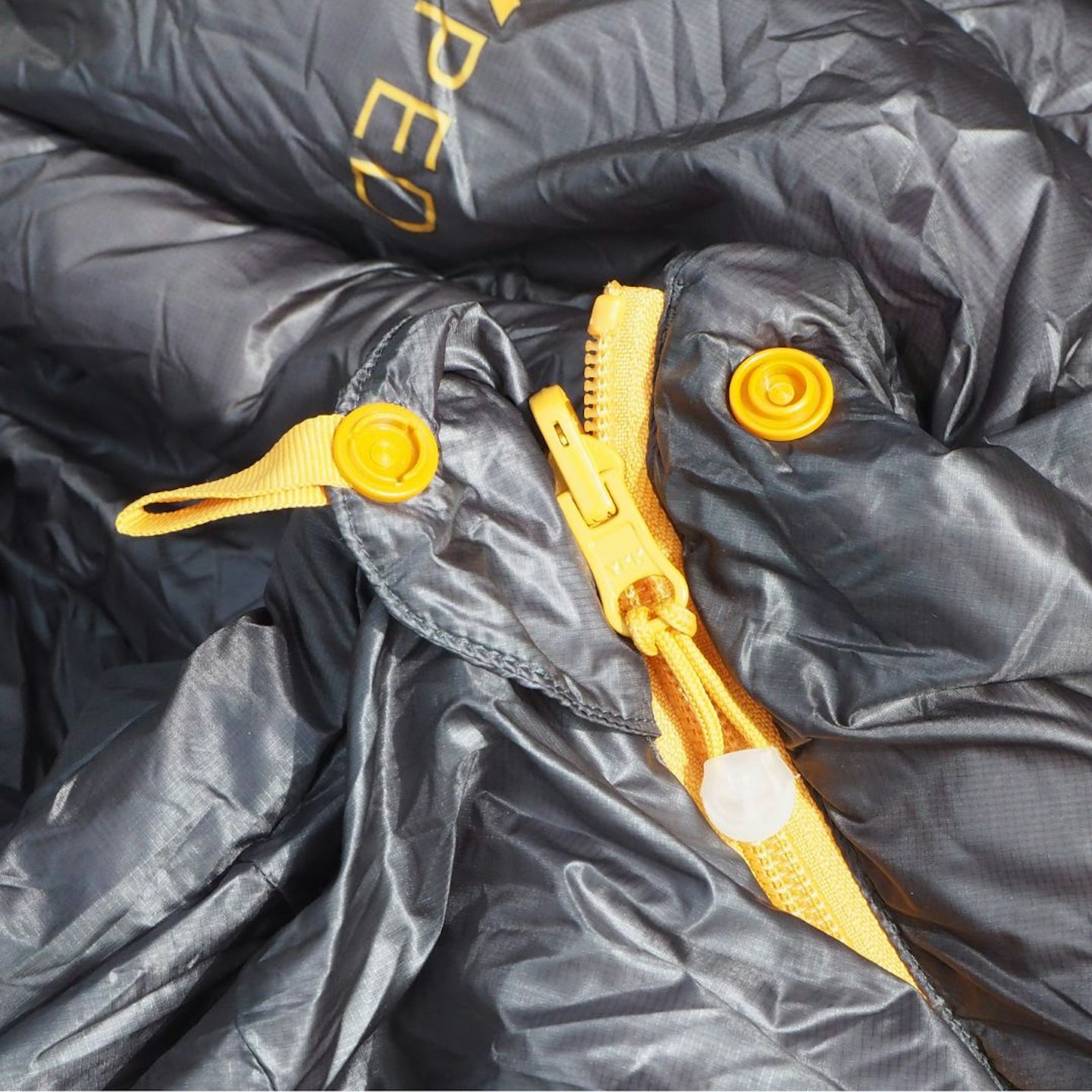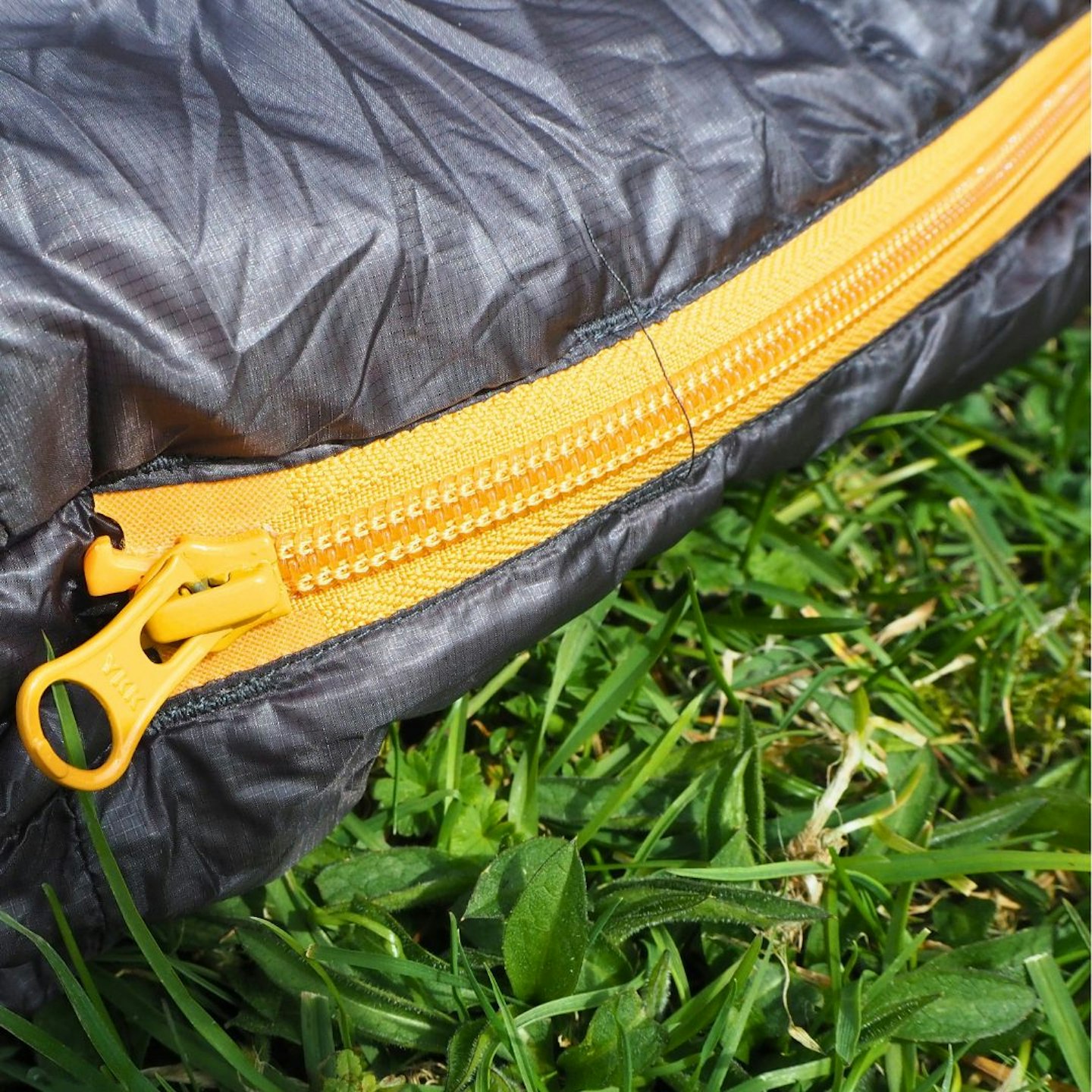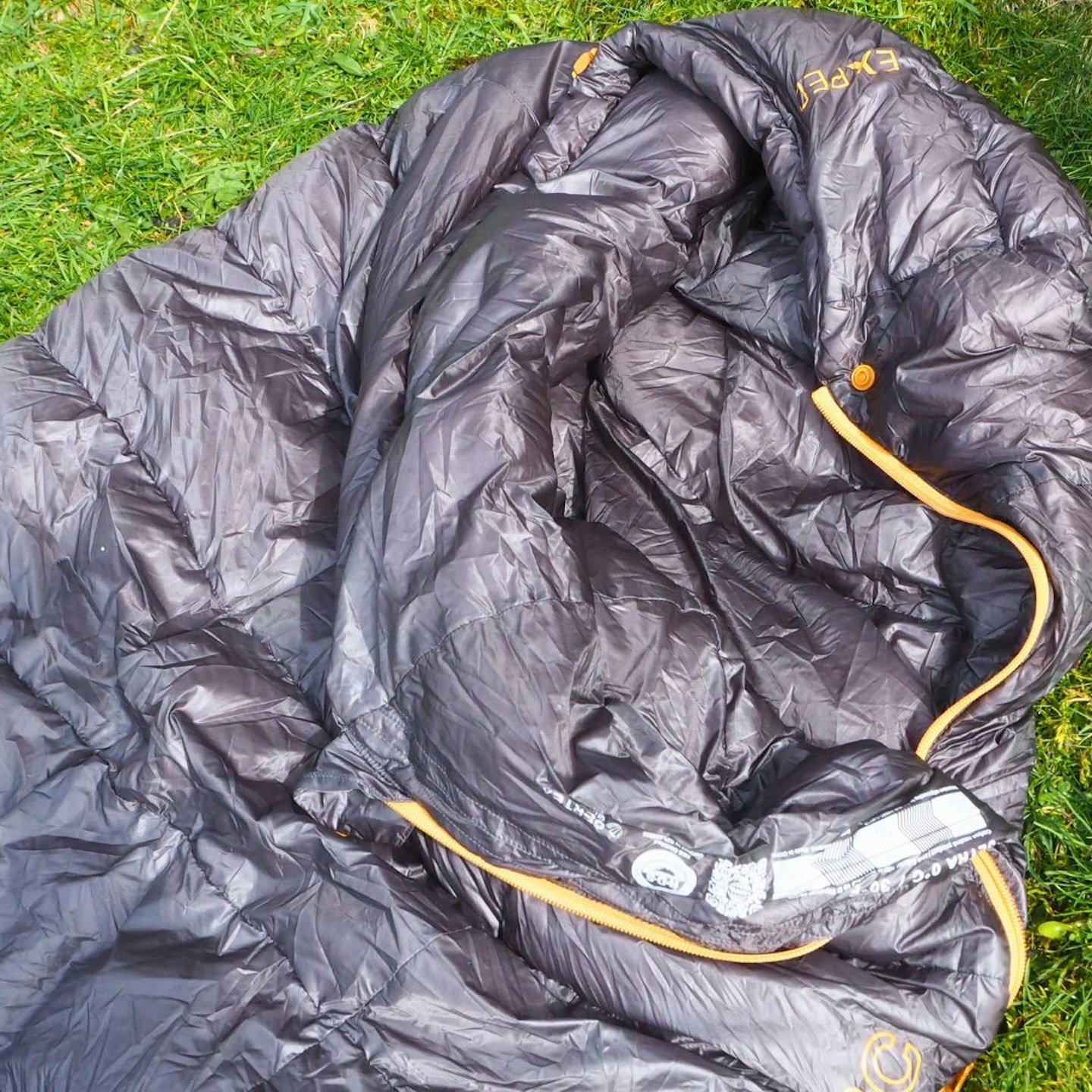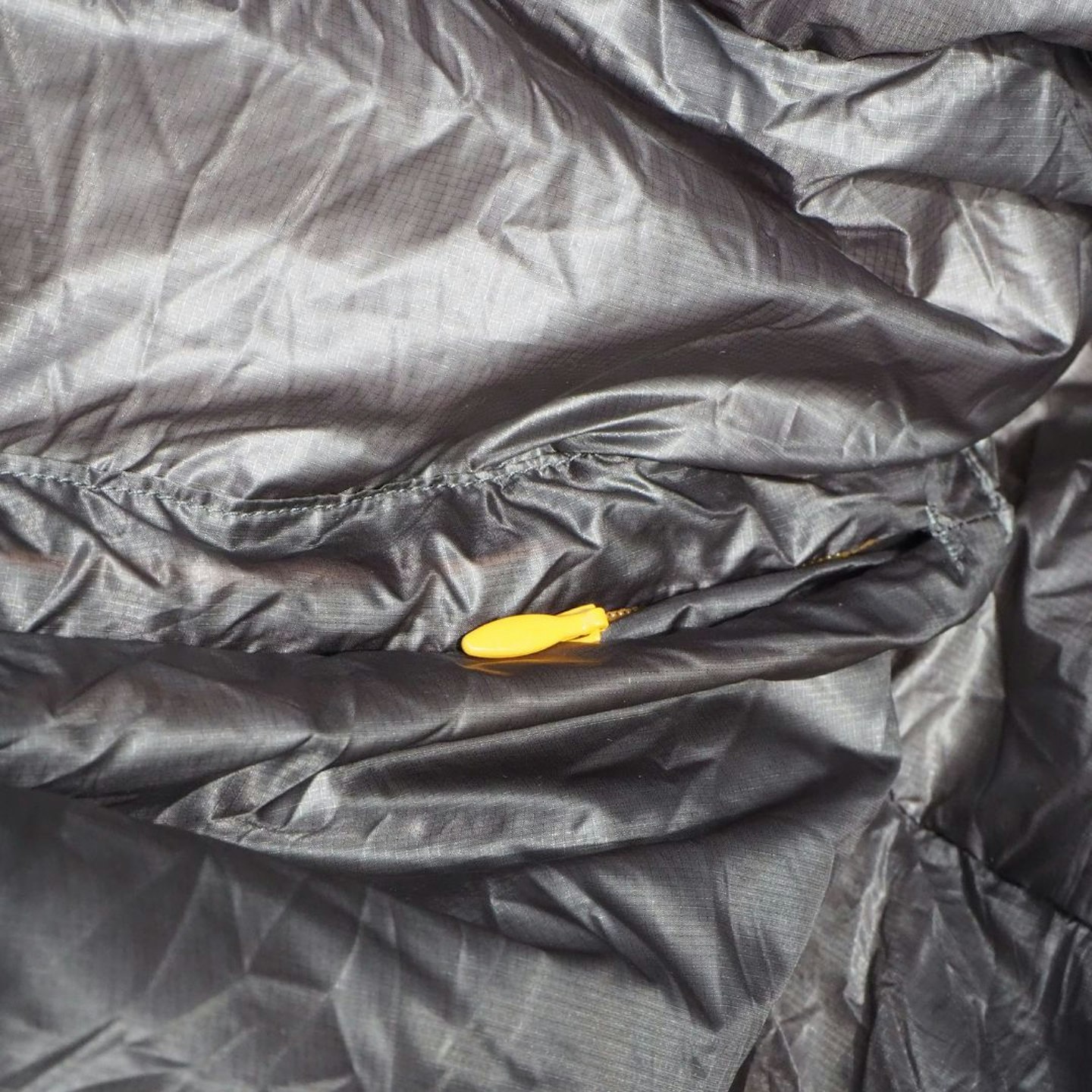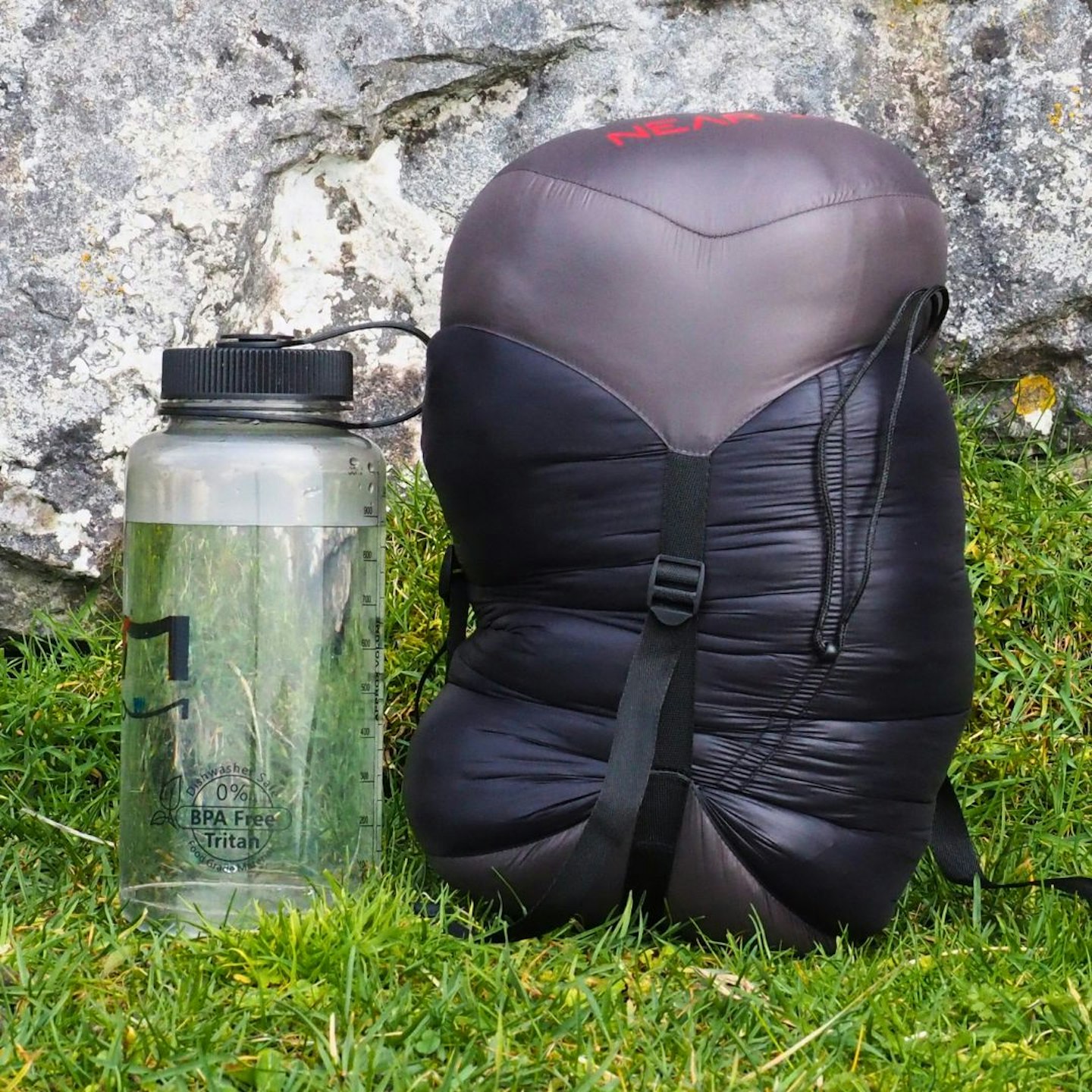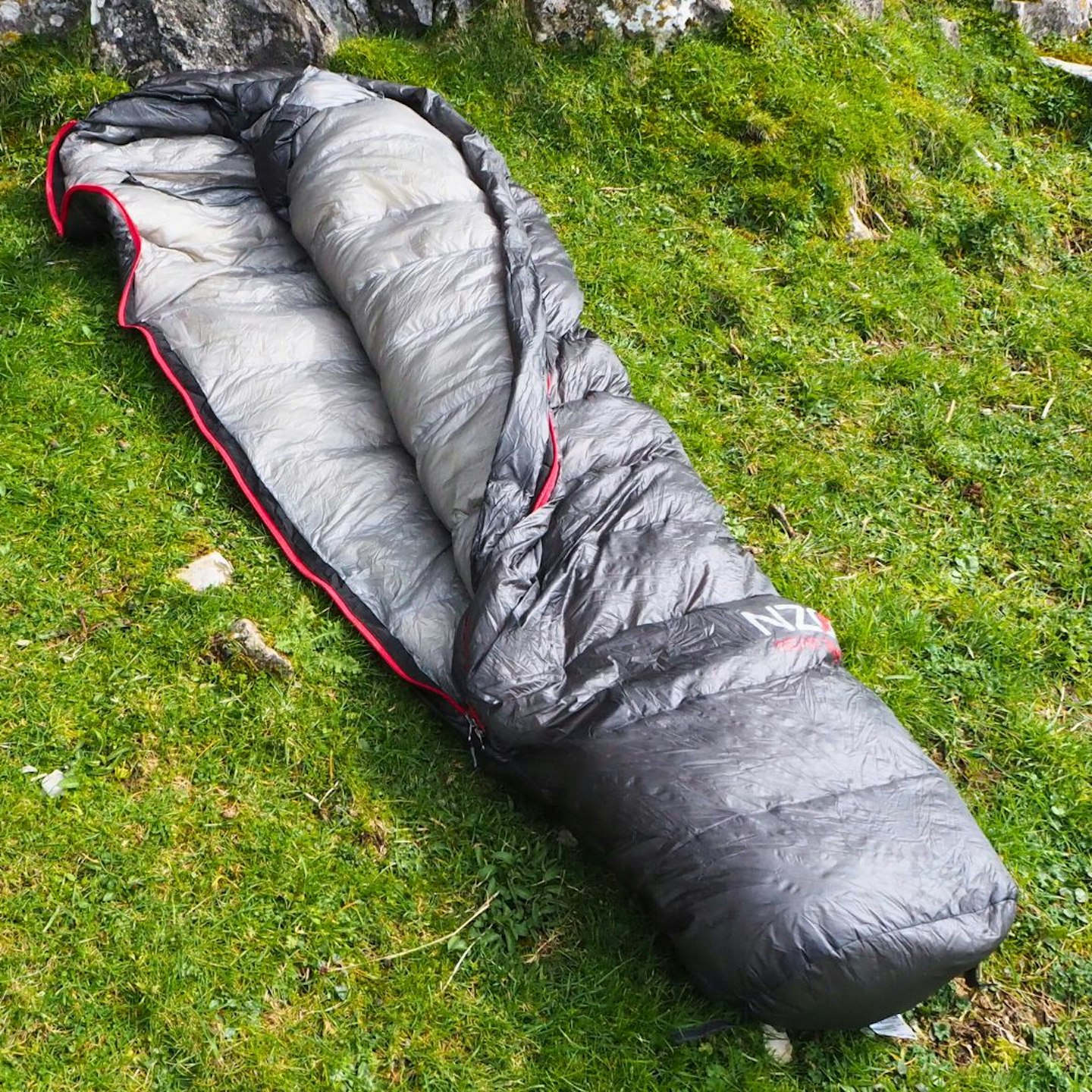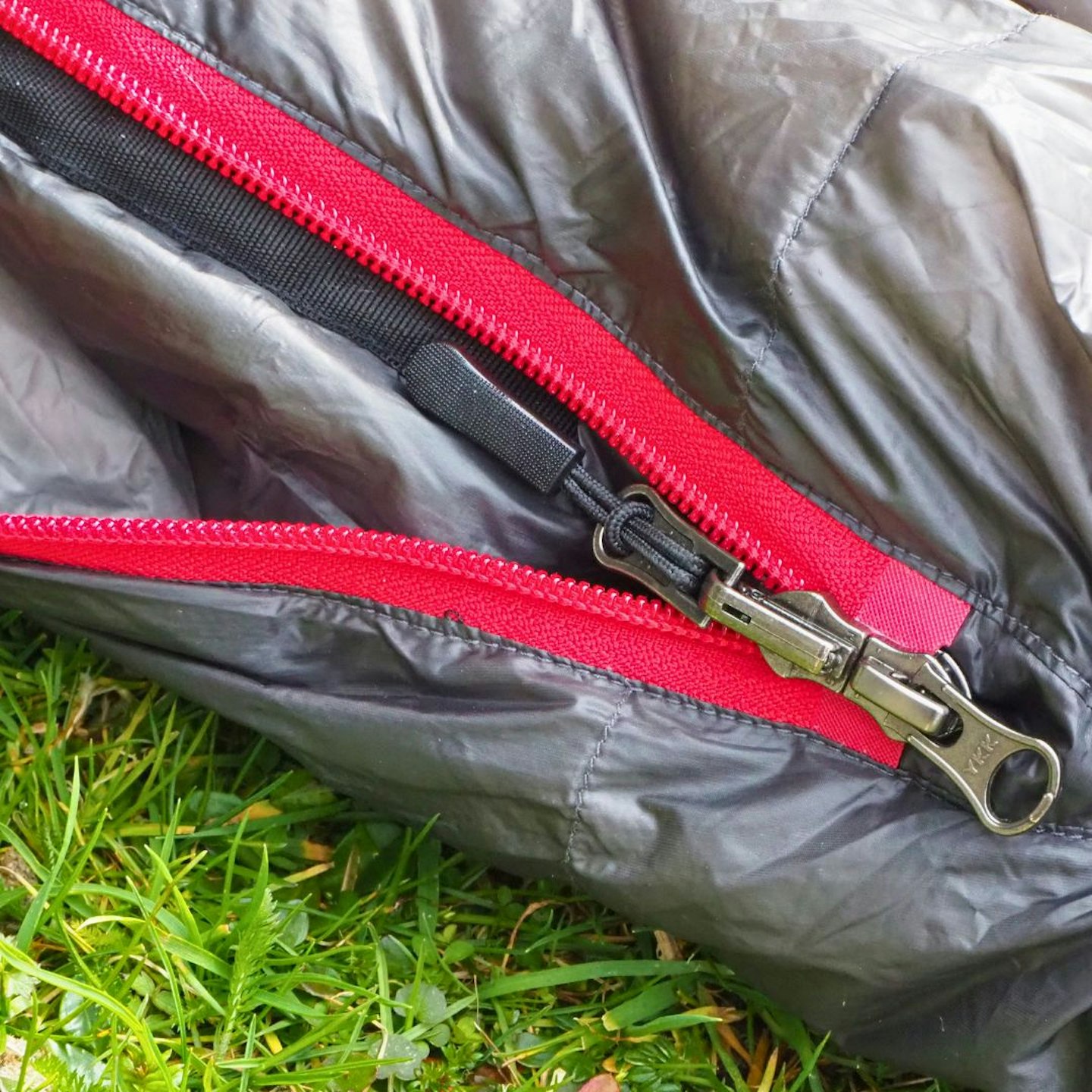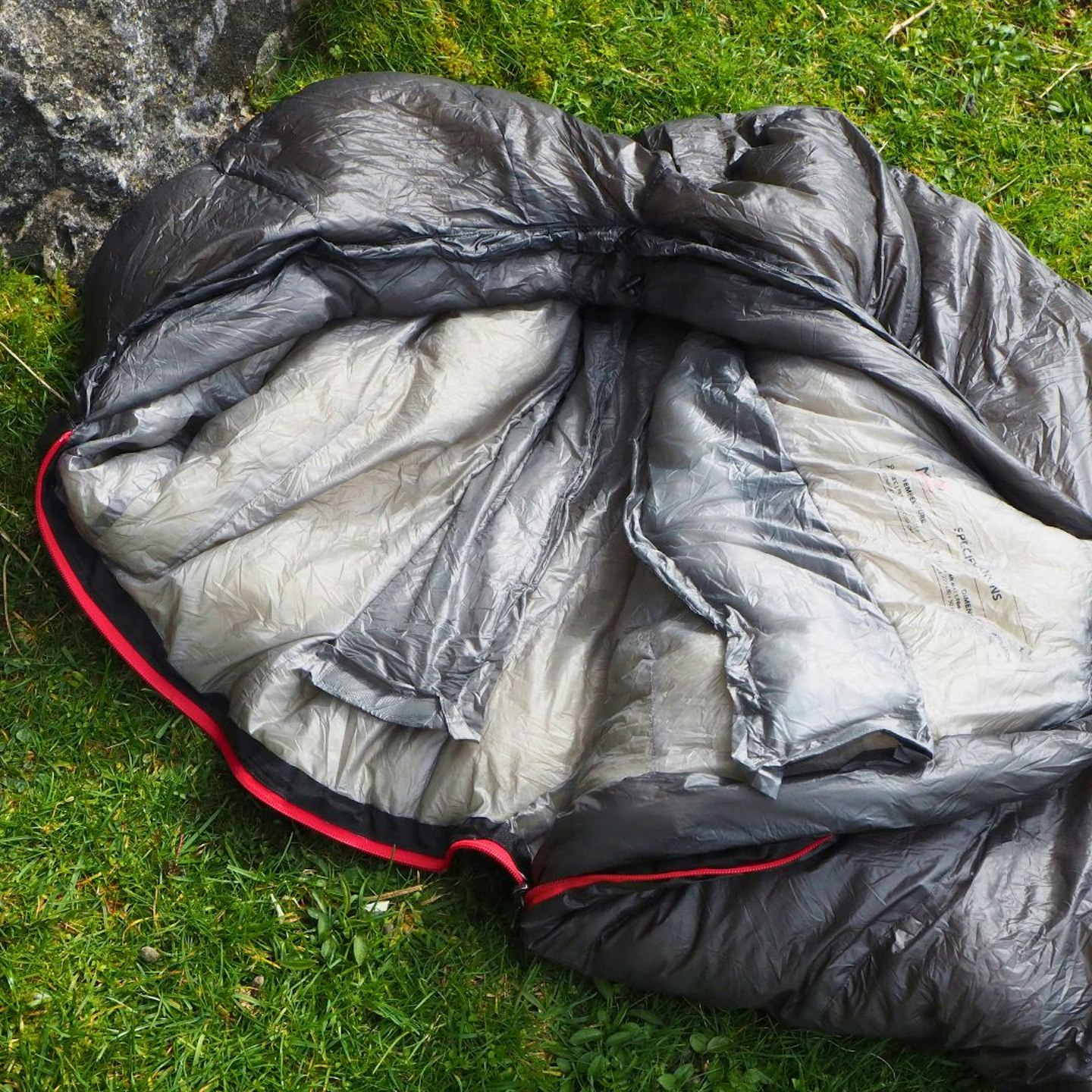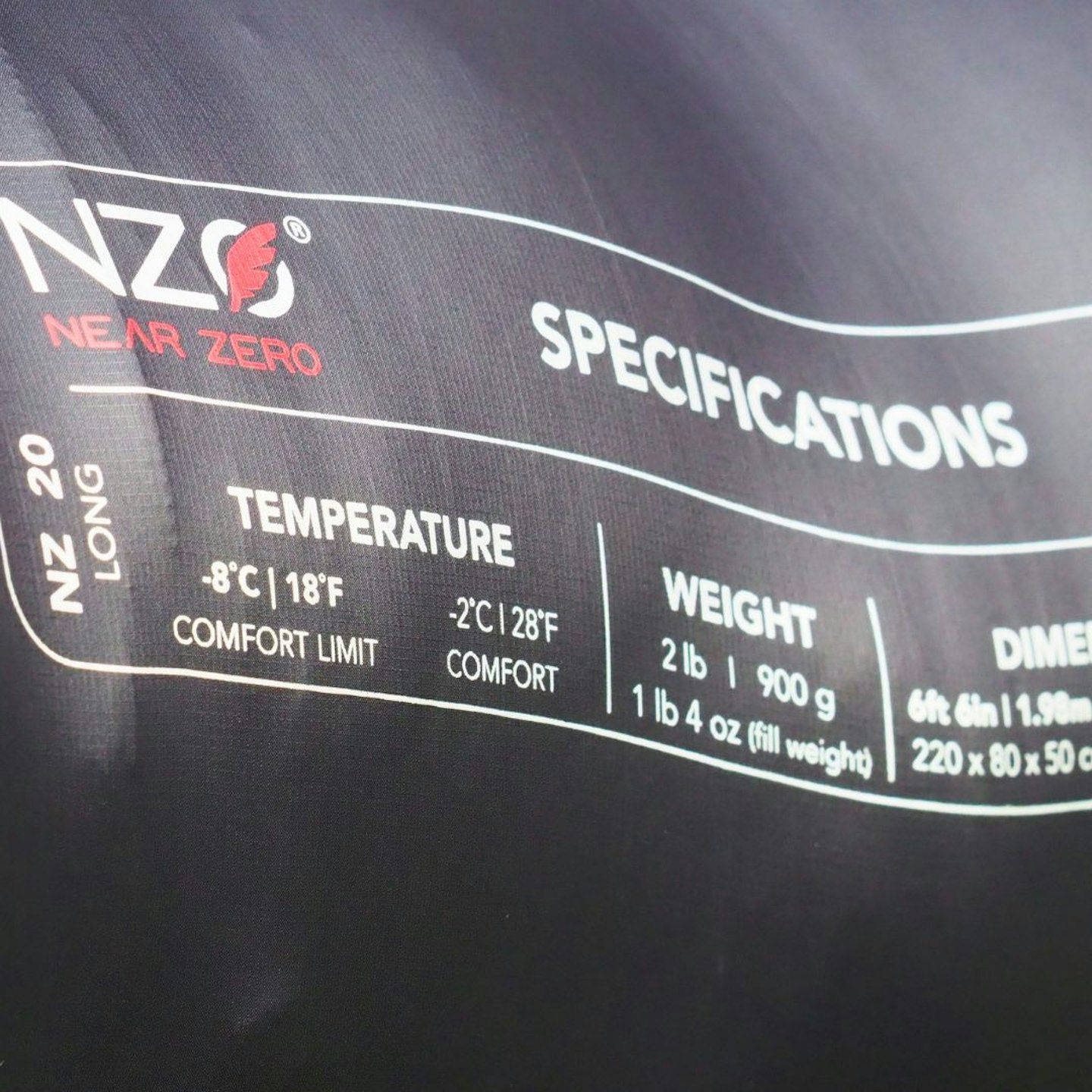There are many of us keen on a sleeping bag that’s as light as possible. All hikers want this with those pursuing the ultralight style of backpacking most of all. Even weekend campers like to keep things compact.
It’s good news for all because one of the areas where sleeping bags have made significant progress is in reducing weight and increasing packability.
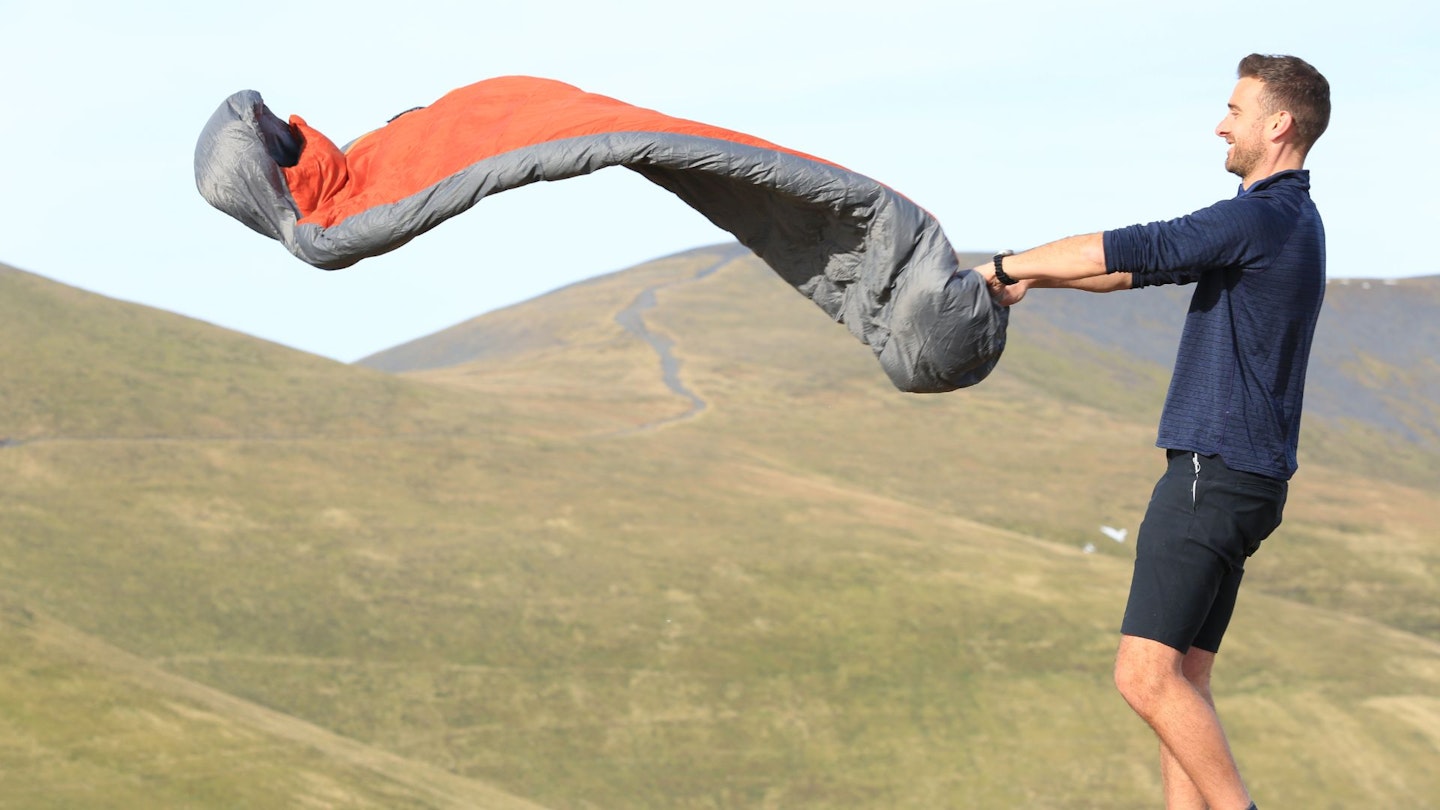
What are the best lightweight sleeping bags of 2025?
Best lightweight sleeping bag: Sea to Summit Spark SPIII
Best Value: Alpkit PipeDream 200
Best synthetic lightweight sleeping bag: Marmot Trestles Elite Eco 30
Best lightweight sleeping bag for winter: Therm-a-Rest Parsec 0F/-18C
Down sleeping bags have highly compressible but some of today’s models, with their tapered shapes and featherweight fabrics, can weigh well under 1kg – sometimes half that. But it’s arguably synthetic sleeping bags that have made the greatest improvement. Once bulbous and heavy, some high-performance, technical synthetic sleeping bags can almost compete with down-filled models for lightness – while being significantly more affordable.
Here, we’ve gathered together and recommended the best lightweight sleeping bags we’ve tested, ranging from affordable and summer models to top of the line options for winter.
Best lightweight sleeping bags reviewed:
The Sea to Summit Spark SPIII has been our go-to lightweight sleeping bag for a few years now. In truth, it's retiring in 2024 as Sea to Summit overhauls its sleeping bag range. But for now, the Spark SPIII remains widely available and still our favourite.
Why? Partly because it has one of the best warmth-to-weight ratios on the market, thanks to high quality 850-fill goose down and ultralightweight 10D shell and lining fabrics. But largely its down to comfort because unlike most top end sleeping bags with their highly tapered mummy shapes, the Spark SPIII is noticeably more roomy.
This sleeping bag isn't overloaded with features but has the important stuff like a two-way zip and easy-cinch hood. So, in recognition of its excellent design, we bid the Spark SPIII adieu with a final Gear of the Year award.
Read our full Sea to Summit Spark SPIII review
Pros
- More internal room compared to rivals
- Super lightweight
- Excellent warmth-to-weight ratio
Cons
- Lightweight fabrics are a little delicate
| Sizes | Regular (183cm), Long (198cm) |
| Packed size | 35 x 15cm |
| Weight | 665 (reg), 745g (long) |
| Insulation | RDS-certified 850-fill goose down w/ UltraDry treatment |
| Materials | 10D nylon shell and lining |
| Temperature rating | Comfort -2°C | Limit -8°C |
For those after a superb warmth to weight ratio, the alpine-style Neutrino family of sleeping bags have long been favourites. The Neutrino sleeping bags are available in five fill weights (not including the Neutrino Pro models), and the 400 is the second lightest.
It’s our pick of the bunch because it offers a comfort rating of -1°C while weighing less than 800g (regular size) and packing down to just 35cm x 23cm.
Key to its success is its shape and quality of fill. It uses 800-fill power goose down and is a highly tapered mummy shape to be as thermally efficient as possible. This does mean that it feels pretty restrictive to lie in – side sleepers and movers probably won’t like it, but others may find it very snug and cocooning.
The Neutrino 400 comes in three sizes and a women’s version, which has a slightly different shape. In terms of features, there are plenty. All the zippers have anti-snag guards; there is a small internal stash pocket for items such as a headtorch; and the chevron shaped baffles help the down for fully loft.
This sleeping bag has good eco credentials too. Its main fabrics are fully recycled, it’s PFC-free, and Rab is a Fair Wear Foundation member with ‘Leader’ status.
Read our full Rab Neutrino 400 review here
Pros
- Tried and tested design
- Excellent warmth-to-weight ratio
- Several sizes and versions
- Decent sustainability credentials
Cons
- Narrow mummy shape won't suit everyone
| Sizes | Regular, Long, Wide, Long Wide, Women's |
| Packed size | 35 x 23cm |
| Weight | 775g (regular), 835g (long and wide), 895g (long wide) |
| Insulation | 400g of 800-fill RDS goose down w/ PFC-free Nikwax treatment |
| Materials | Recycled 20D Pertex Quantum nylon w/ PFC-free DWR |
| Temperature rating | -1°C comfort | -7°C comfort limit |
The PipeDream 200 is the lightest model in Alpkit’s PipeDream line. It’s a reasonably basic option with only a couple of additions such as the use of DownTek hydrophobic down.
But on the plus side, the bag packs down to a tiny 15cm x 12cm and weighs less than 600g (the regular size weighs just 545g). It’s therefore a brilliant summer sleeping bag for hikers – especially for those favouring a lightweight minimalist approach.
In terms of fit and comfort, the PipeDream 200 is a mummy shape, but isn’t quite as severely tapered as the Rab Neutrino sleeping bags. The 200 has a comfort rating of around 7°C so be in no doubt this is a bag for mild conditions – but there are 400 and 600 versions of the PipeDream that are rated for negative temperatures. You could also couple it with a sleeping bag liner.
The 20D material used isn’t recycled but the DWR and hydrophobic down are both PFC-free. Alpkit is also a certified B Corp.
Pros
- Superb for summer backpacking and bikepacking
- PFC-free
- Good value for a down sleeping bag
Cons
- Not suitable for cold conditions
| Sizes | Regular, Long |
| Packed size | 20 x 16cm |
| Weight | 545g (regular), 575g (long) |
| Insulation | RDS 750-fill down w/ PFC-free DownTek treatment |
| Materials | 20D polyester shell and lining w/ PFC-free DWR |
| Temperature rating | Comfort 11°C | Limit 7°C |
Designed to offer impressive synthetic performance while using the most sustainable materials it can, the Marmot Trestles Elite Eco models have been among our favourite synthetic sleep bags for several years now.
It uses a fully recycled synthetic insulation called HL-ElixR Eco, which offers an impressive warmth to weight ratio and continues to insulate when damp (a trademark of synthetic insulation). The shell and lining materials are also fully recycled.
In addition to the low weight, the packed size of the bag is good for a synthetic with this temperature too. The main side zip is full-length and exceptionally well designed not to snag, but there’s also an additional zip on the opposite side of the bag so you can more easily vent the top, as well as sit and read from the bag.
Get in the bag and it is more spacious than most highly tapered mummy shaped models, with a particularly roomy foot area. The hood draws in easily and is very comfortable around the head.
Drawbacks? The main side zip doesn’t quite reach the foot either, so you do get warm feet even with the zip open, although that is a minor difference perhaps rather than a big drawback. There is a shoulder baffle but compared to some it is not quite as good at locking in the warm air. So, perhaps niggles rather than drawbacks.
Pros
- Fully recycled main materials and fill
- Still performs in damp conditions
- Comfortable material
- Impressively low weight for synthetic
Cons
- Could have a better draft collar
- Not the most compressible
| Sizes | Regular, Long, Long X Wide |
| Packed size | 46 x 22cm |
| Weight | 855g (regular), 918g (long), 1.14kg (long x wide) |
| Insulation | Recycled HL-ElixR Eco synthetic |
| Materials | Recycled polyester shell and lining |
| Temperature rating | Comfort 3°C | Limit -2°C |
This sleeping bag from Exped is remarkable in its combination of lightness and warmth. The answer lies in its premium 850-fill goose down insulation, efficient mummy shape, and lightweight fabrics, enabling this 600g sleeping bag (long size) to achieve a comfort temperature rating down to approximately 2°C.
Unlike many other sleeping bags that typically offer only regular and long sizes, the Exped Ultra 0° comes in five variations: small, medium, medium wide, large, and large wide.
What also sets the Exped Ultra 0° apart is its commitment to sustainability. While responsibly sourced down is expected of all sleeping bags, Exped takes it further by utilising a fully recycled and bluesign-approved 10D Pertex Quantum outer fabric with a PFC-free, plant based DWR. The zipper is made from recycled bottles too. Exped even offsets manufacturing and shipping emissions.
Although it does have potential for longevity, be aware the the Ultra 0 should be used and handled with care due to the delicate nature of the shell and lining fabrics.
Read our full Exped Ultra 0 review
Pros
- Sustainable
- Super lightweight and compact
- Five sizes available
- Impressive warmth-to-weight ratio
Cons
- No hydrophobic down treatment
| Sizes | Small (170cm), Medium (180cm), Long (195cm), Medium Wide, Long Wide |
| Packed size | 20 x 15cm (Small), 25 x 15cm (Med), 30 x 17cm (Long and MW), 32 x 17cm (LW) |
| Weight | 510g (Small), 530g (Med), 590g (Long), 660g (MW), 690g (LW) |
| Fill | RDS-certified 850-fill down |
| Materials | Recycled, bluesign-approved 10D nylon Pertex Quantum shell w/ PFC-free DWR, 15D nylon lining |
| Temperature rating | Comfort 7°C | Limit 2°C |
Near Zero is unlikely to be an outdoor brand you’ll know. It’s reasonably fresh, based in Arizona and specialises in ready-to-hike bundles that fit into its 55-litre backpack with a unique internal organisation arrangement.
We tested the brand’s NZ 20 sleeping bag while we were testing a full Near Zero bundle and were really impressed by it as a lightweight 3-season sleeping bag.
It uses very high quality 850-fill power down, which in combination with a super lightweight 10D nylon shell fabric means the NZ 20 has a comfort temperature of -2°C at a weight of just 800g (regular size).
That’s impressive, and even more so considering this bag’s price. The untreated down lofts really well, and while the fit is snug (some would say restrictive), there are three different sizes to suit body types.
Like the Therm-a-Rest Parsec 0F (below), the NZ 20 does feel quite delicate and does need to be treated carefully if you want to ensure longevity.
Read our full Near Zero bundle review here
Pros
- Very high quality down for the price
- Can be used most of the year
- Good shape and comfort
Cons
- Delicate main material
| Sizes | Short, Regular, Long |
| Packed size | 28 x 19cm |
| Weight | 700g (short), 800g (regular), 900g (long) |
| Insulation | RDS 850-fill duck down |
| Materials | 10D taffeta nylon |
| Temperature rating | Comfort -2°C | Limit -8°C |
Therm-a-Rest's Parsec -18°C sleeping bag continues to be a standout for us because it delivers on all fronts: warmth, comfort, weight, and sustainability.
Weighing in at a mere 1kg (1.1kg for large size) and a comfort rating of -10°C, the Parsec boasts a remarkable warmth-to-weight ratio thanks to its innovative 'heat-mapped zoned insulation'. By strategically placing 70% of the down on top and 30% below, it achieves superior temperature ratings compared to similar products on the market.
Its eco-conscious design features a 100% recycled ripstop nylon DWR shell and liner, PFC-free hydrophobic down treatment, and of course RDS down. In terms of features, our favourite is the 'synergy link' connectors, which let you strap your bag to your sleeping mat.
Additional highlights include the plush 'toe-asis' footbox and effective heat-trapping draft collars and baffles. You of course get compression and storage stuff sacks as well.
However, due to the lightweight fabrics and construction, the Parsec feels a bit delicate and long-term durability, particularly under heavy outdoor use, is questionable. Additionally, the premium price tag may deter budget-conscious buyers, and the Parsec's temperature ratings may be excessive for milder winter conditions.
Pros
- Amazing warmth-to-weight ratio
- Very cosy
- Clever features
Cons
- Main materials not very tough
- Overkill for many
| Sizes | Small, Regular, Long |
| Packed size | 23 x 20cm |
| Weight | 0.98kg (small), 1.09kg (regular), 1.16kg (long) |
| Insulation | RDS 800-fill goose down w/ PFC-free Nikwax treatment |
| Materials | Recycled 20D nylon lining and shell w/ DWR |
| Temperature rating | Comfort -10°C | Limit -18°C |
Sea To Summit’s Ascent sleeping bags don’t offer the pinnacle of warmth-to-weight ratios. With the Ascent -1°C, it weighs around 800g and has a comfort rating of 3°C – that’s good but not the best.
The Ascent -1°C makes up for it though, thanks to quality of design. The hood, for example, is generous but is adjustable and can be cinched in tighter. You also get a very clever zip arrangement.
The main zip is full length and two-way, but there is another half-length zip on the other side. This gives you far for ventilation options – half unzipped and folded on a hot night, unzipped and the feet or anywhere really. This arrangement also allows you to wear the sleeping bag with your arms free so you can use your stove for example.
The fit is more relaxed than many other lightweight sleeping bags, with noticeably more room to move as a result. Sea to Summit calling the shape a ‘relaxed mummy fit’, meaning it sits in between mummy and rectangular.
Pros
- Adaptable zip configuration
- PFC-free
- Roomy
- Slightly tough outer fabric than some superlight rivals
Cons
- Some rivals have better warmth-to-weight ratio
| Sizes | Regular, Long, Women's Regular, Women's Long |
| Packed size | 40 x 20cm |
| Weight | 782g (regular), 879g (long), 893g (women's reg), 1.02kg (women's long) |
| Insulation | RDS 750-fill goose down w/ PFC-free Ultra-Dry Down treatment |
| Materials | Recycled 20D nylon shell and lining, 10D hood and footbox |
| Temperature rating | Comfort 3°C | Limit -1°C |
We first tested this super affordable synthetic sleeping bag five years ago, and remains a great option for summer. Granted, it’s the heaviest option in our selection but at 1.3kg it’s still pretty lightweight, and it packs down to about 38cm x 23cm – again, the bulkiest option here but still reasonably compact.
The Roam 200 features a ¾-length zip, internal stash pocket, and anti-snap zipper. It’s therefore pretty basic but for the price, that’s not too surprising.
The Roam 200 is pretty comfortable though, thanks to the soft lining material. It is a tapered mummy shape, but there’s still room to move.
There’s nothing really to discuss regarding sustainability, which is disappointing – using recycled materials is expected with synthetic outdoor gear these days.
Pros
- Low upfront cost
- Good comfort
- Synthetic insulation performs in damp conditions
Cons
- Only one size
- Heaviest and bulkiest option here
- Poor sustainability efforts
| Sizes | One (215cm length) |
| Packed size | 38 x 23cm |
| Weight | 1.3kg |
| Insulation | Synthetic |
| Materials | Polyester shell and lining |
| Temperature rating | Comfort 1°C | Limit -4°C |
This particular sleeping bag liner is the lightest and most effective means of boosting your sleeping bags warmth. It's made using a partially recycled Thermolite Pro fabric and is designed to boost warmth by 12% on a summer sleeping bag and by 6% in a 3-season one.
On paper that sounds negligible but anyone who's used a thermal sleeping bag liner before can testify how well they work.
What makes the Reactor Liner our favourite of all it that it's super lighter and more compact than most thermal liners, weighing a mere 268g, packed into a tiny 15 x 11cm package. It also has a bio-based anti-odour treatment.
There is a family of Sea to Summit Reactor liners, with this being the lightest. There are also Reactor Extreme and Rector Fleece versions that boost warmth even more.
**For a full review, read our best sleeping bag liners article.
**
Pros
- Comfy and soft
- Arms-free design
- Anti-odour treatment
- Super light and compact
Cons
- There are cheaper thermal liners out there
| Sizes | One size |
| Packed size | 15 x 11cm |
| Weight | 268g |
| Insulation | N/A |
| Materials | Thermolite Pro, recycled Thermolite EcoMade w/ HeiQ anti-odour treatment |
| Temperature rating | N/A |
How we test
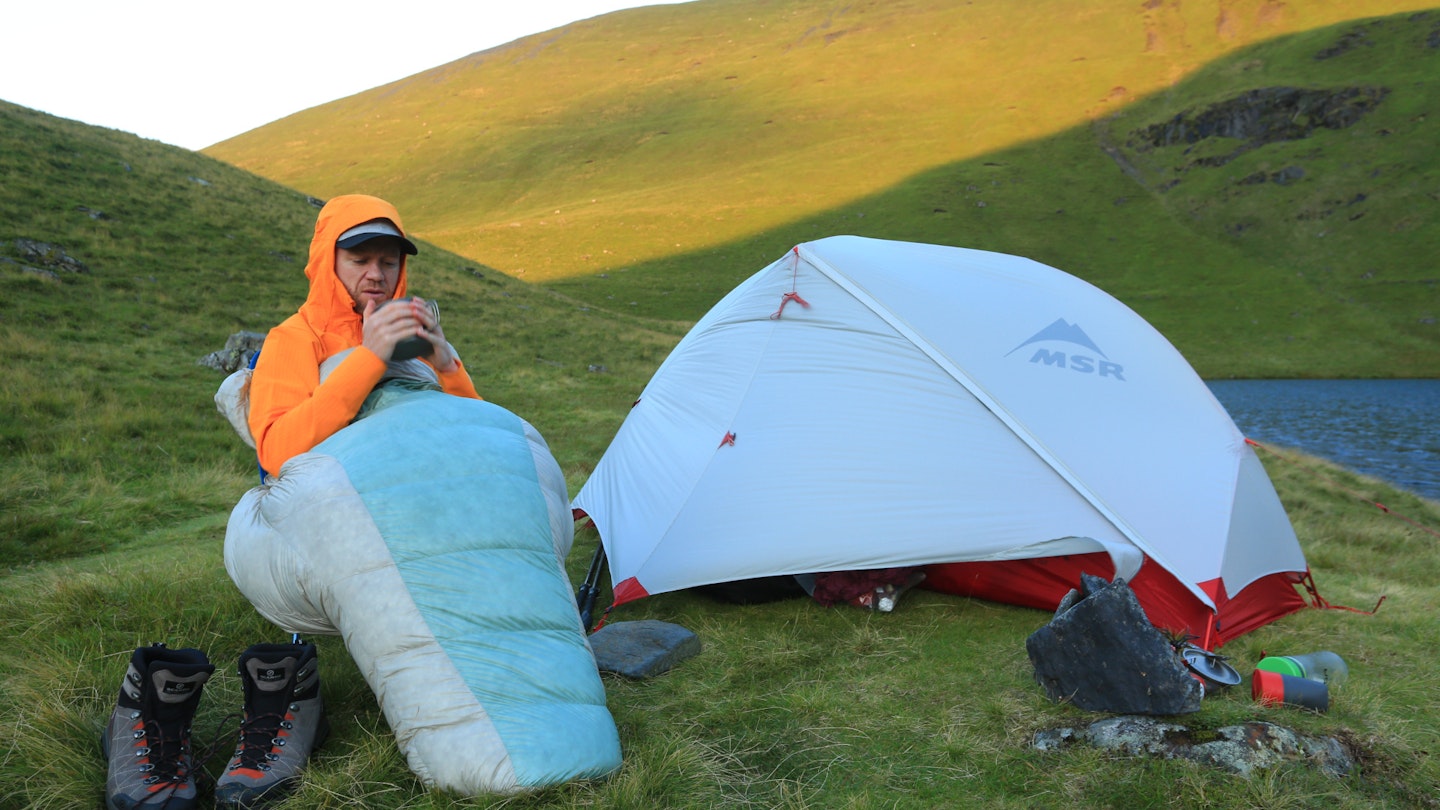
The lightweight sleeping bags recommended here were tested by several of our gear testing team, including Chris Williams and James Forrest.
Chris is a journalist and hiking fanatic from New Zealand who has been testing gear for us since 2021. James has been one of our main freelance gear testers on LFTO and our magazine, Trail, for the last few years and is one of the most well known outdoor writers in the UK.
We do a lot of camping throughout the year, and so the sleeping bags we test undergo thorough, real-world testing.
How do I buy a lightweight sleeping bag?
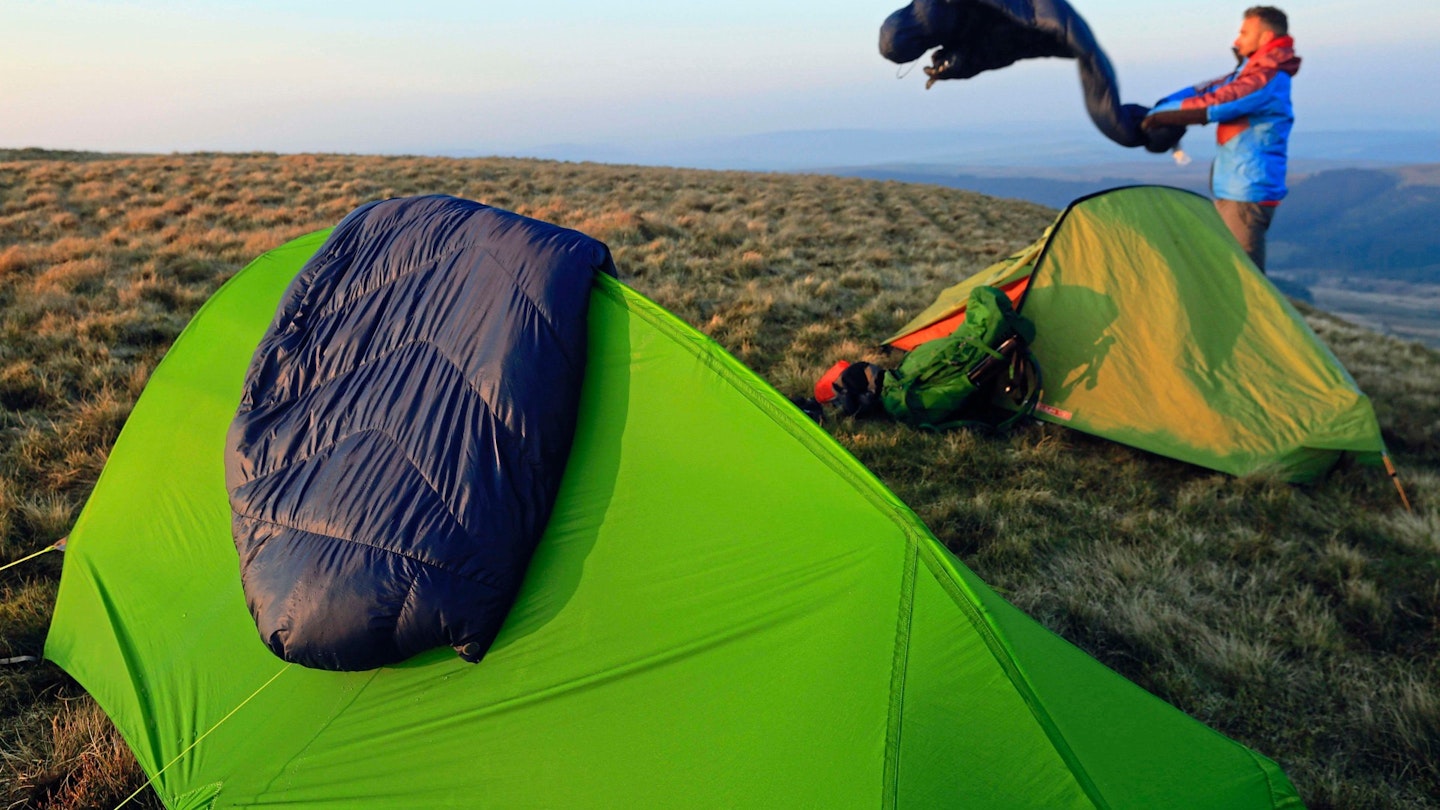
What exactly is a lightweight sleeping bag?
Quantify the category – give us a number. ‘Lightweight’ means something different depending on sleeping bag use. A family staying at a National Trust camping ground may consider a 2kg bag to be pretty featherweight but a backpacker or hiker won’t – they’ll more likely consider under 1kg to be lightweight.
For us, we tend to have 1kg as a convenient benchmark for hiking and consider anything under 1.4kg for general camping. A lot of super lightweight sleeping bags weigh a mere 500g or so.
Are all lightweight sleeping bags down insulated?
Not anymore. While the very lightest and highest performing sleeping bags are indeed insulated with down, there are now some excellent lightweight synthetic options available.
Synthetic insulated sleeping bags have the added bonus of coping with damp conditions far better than down.
Why are most lightweight sleeping bags mummy shaped?
Mummy shaped sleeping bags are more thermally efficient than rectangular shaped bags because they drastically reduce empty space inside the bag. Mummy sleeping bags are also more compact because their shape requires less material and takes up less space.
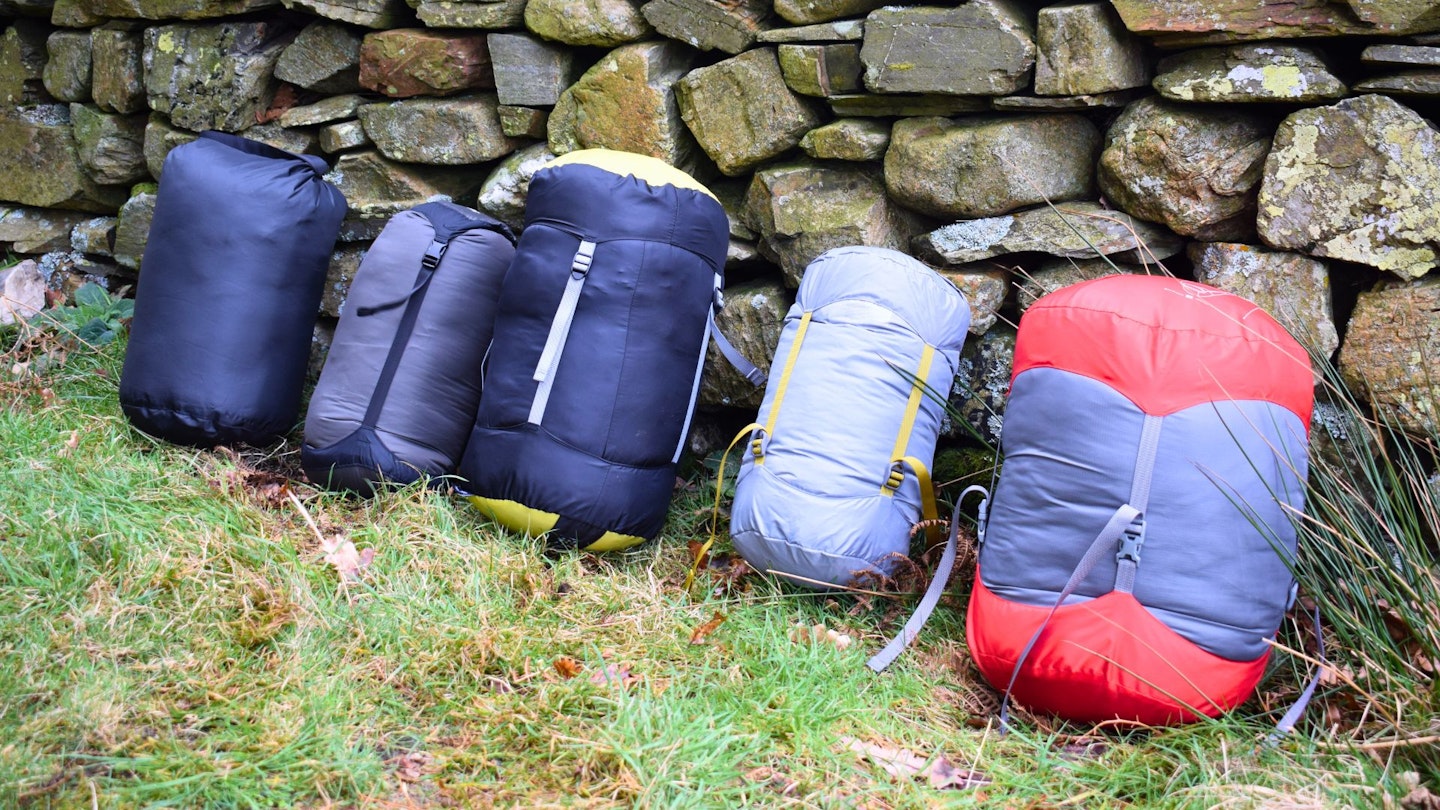
What about packed size?
A sleeping bag that is highly compressible is more important for hikers than it is for campers because hikers have to store and transport their sleeping bag in a rucksack.
Down is more compressible than synthetic insulation but there are some impressively compact synthetic sleeping bags available.
What is warmth-to-weight ratio?
We’ve mentioned this a lot in this article. It refers to how warm a sleeping bag is relative to its weight. If two sleeping bags have the same level of warmth, but one weighs much less, it has a higher warmth-to-weight ratio than the other sleeping bag.
A high warmth-to-weight ratio is particularly important with lightweight sleeping bags because it denotes a high level of thermal efficiency. Even though your sleeping bag weighs very little, you still want it to insulate effectively.
How do I clean a sleeping bag?
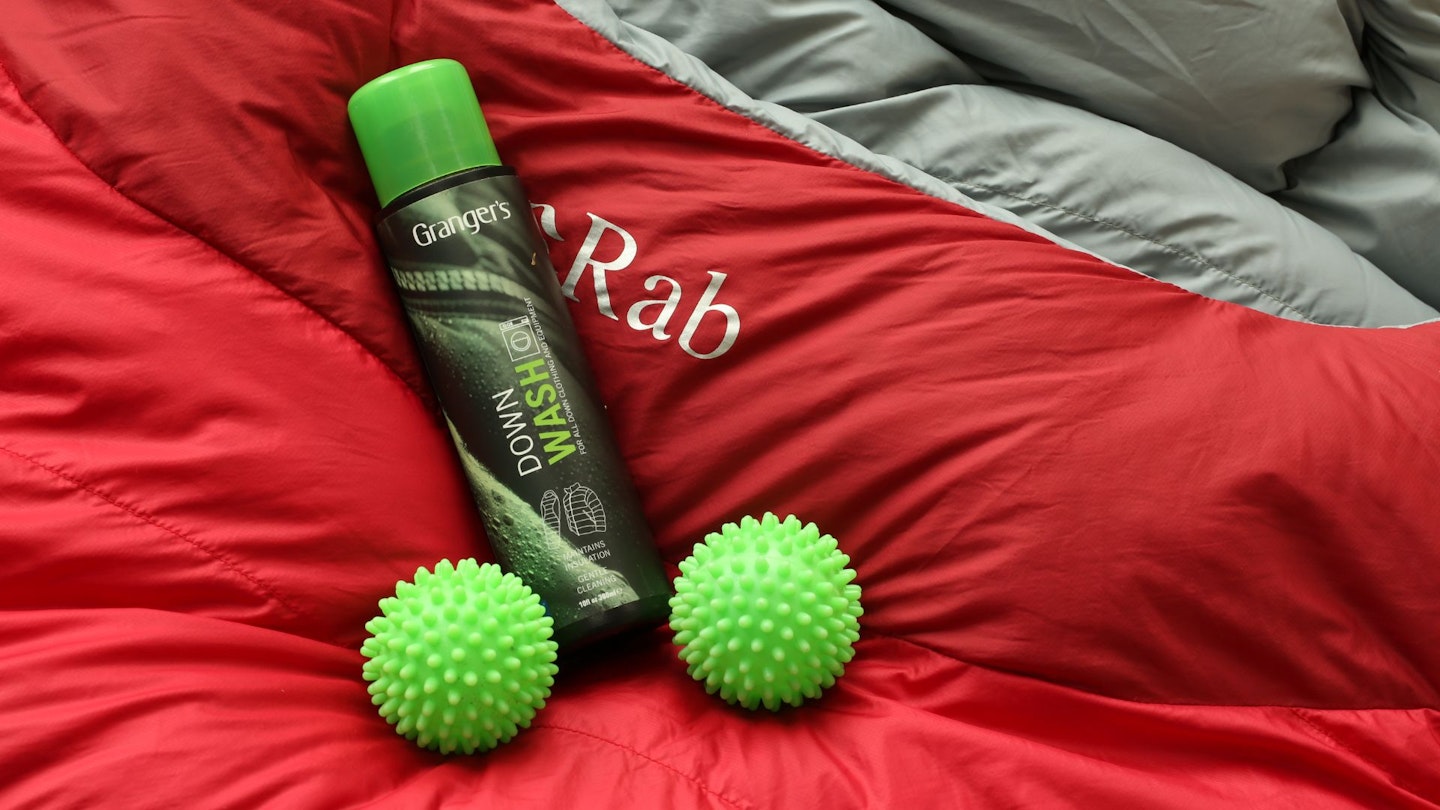
The shell and lining materials can be spot cleaned as needed, or the whole sleeping bag can be soaked in a bath tub or large container of some kind. You can read our full guide on washing insulated outdoor gear for more.
The main thing is to refrain from using laundry detergent because it leaves behind residue that affects the material’s water repellency and the insulation’s ability to fully loft. Instead, use Grangers Down Wash or Nikwax Down Wash.Direct.
Both of these specialist cleaning products are for sleeping bags and insulated jackets – they clean the material and down and restore breathability and loft. They’re eco-friendly too, being PFC-free and supplied in a recycled bottle.
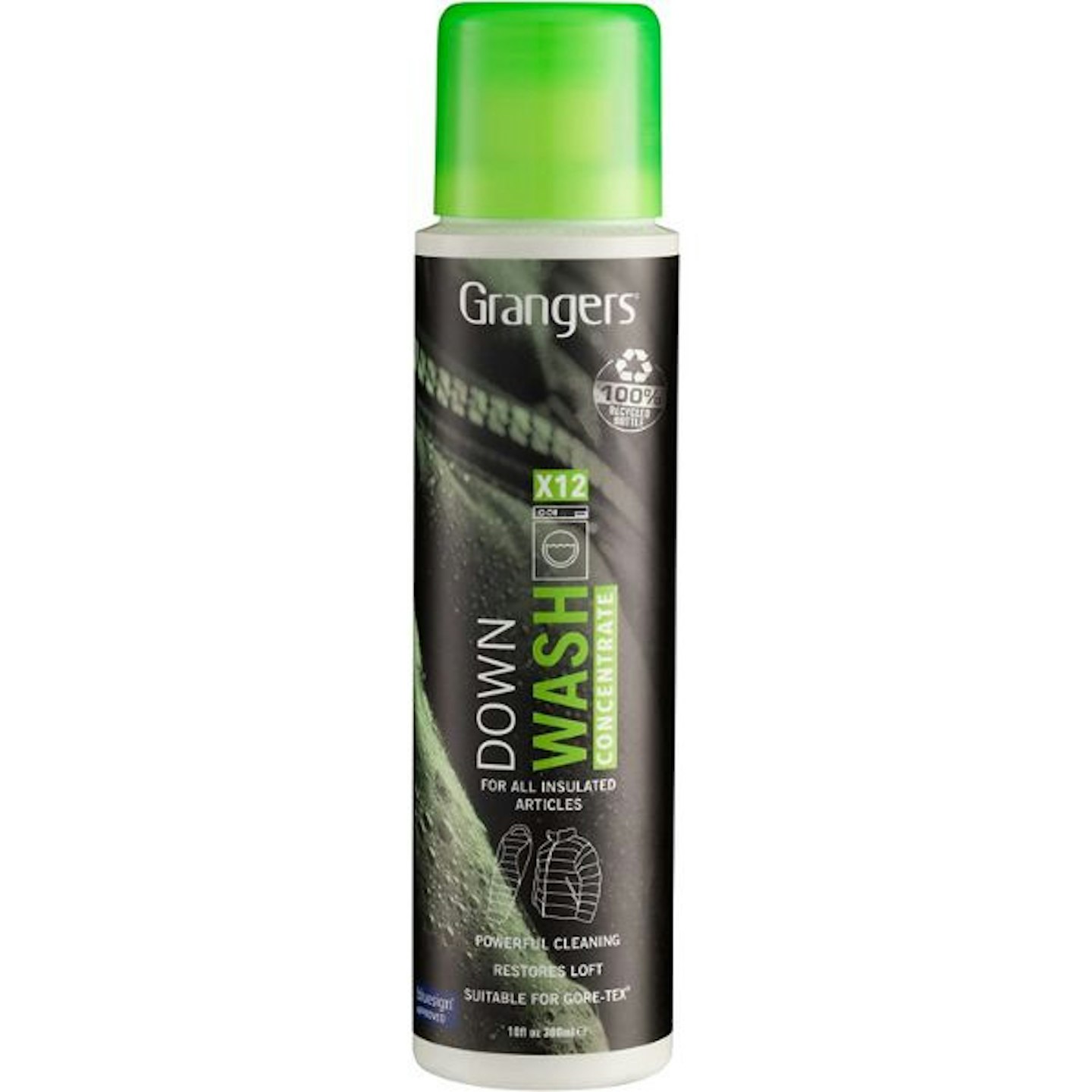
About the author
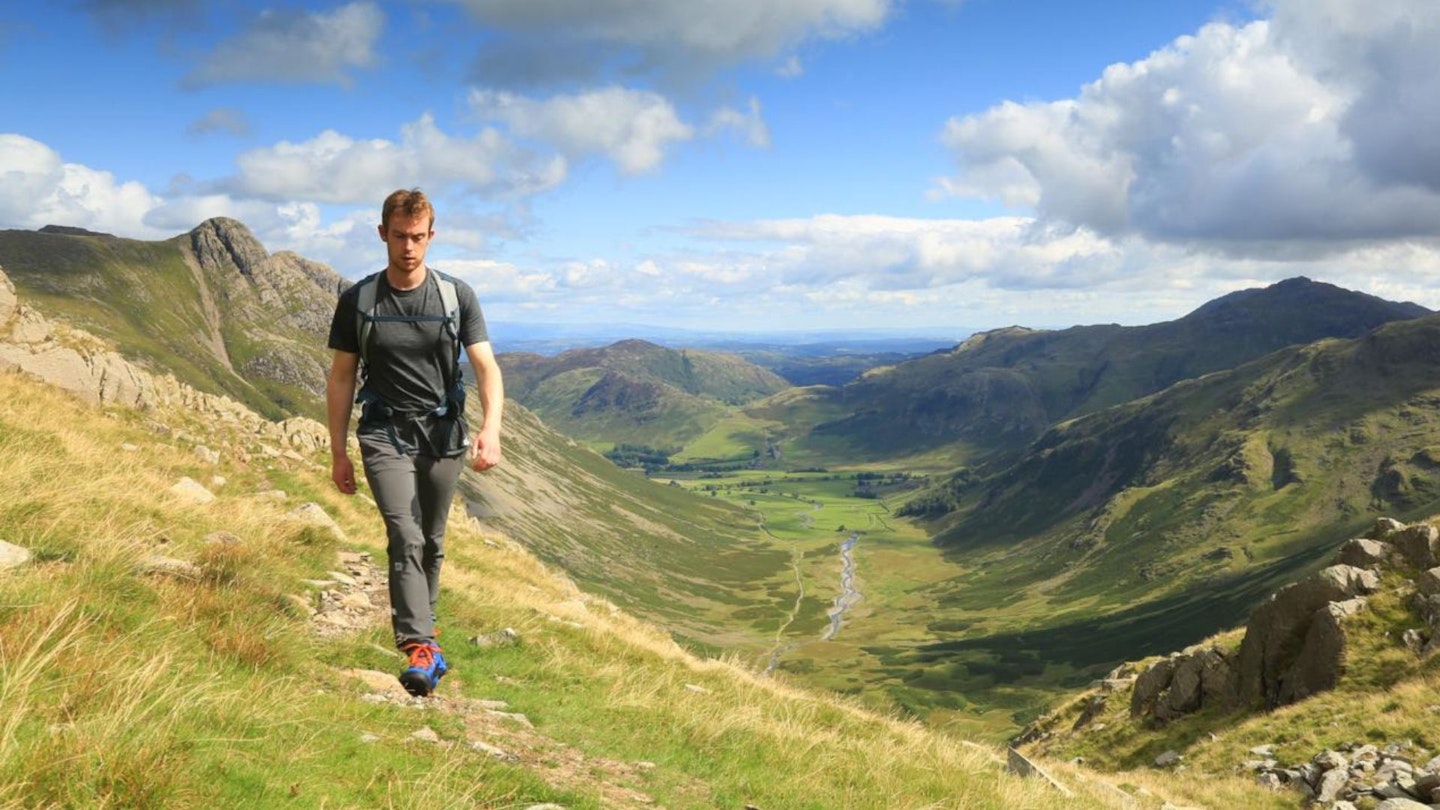
Chris Williams is our Senior Writer. He trained as a journalist in New Zealand and has been working for LFTO since 2021. Chris spent his childhood doing almost every outdoor sport under the sun. Eventually, those he pursued into his adult years were hiking, trail running, mountain biking and water skiing.
He began writing professionally after university, training at New Zealand’s Otago Daily Times newspaper. Curiously, it was for the motoring section. However, Chris also worked for New Zealand’s leading outdoor gear brand, and after spending a couple of years doing automotive writing, he changed to outdoor and thus joined Live For The Outdoors.
